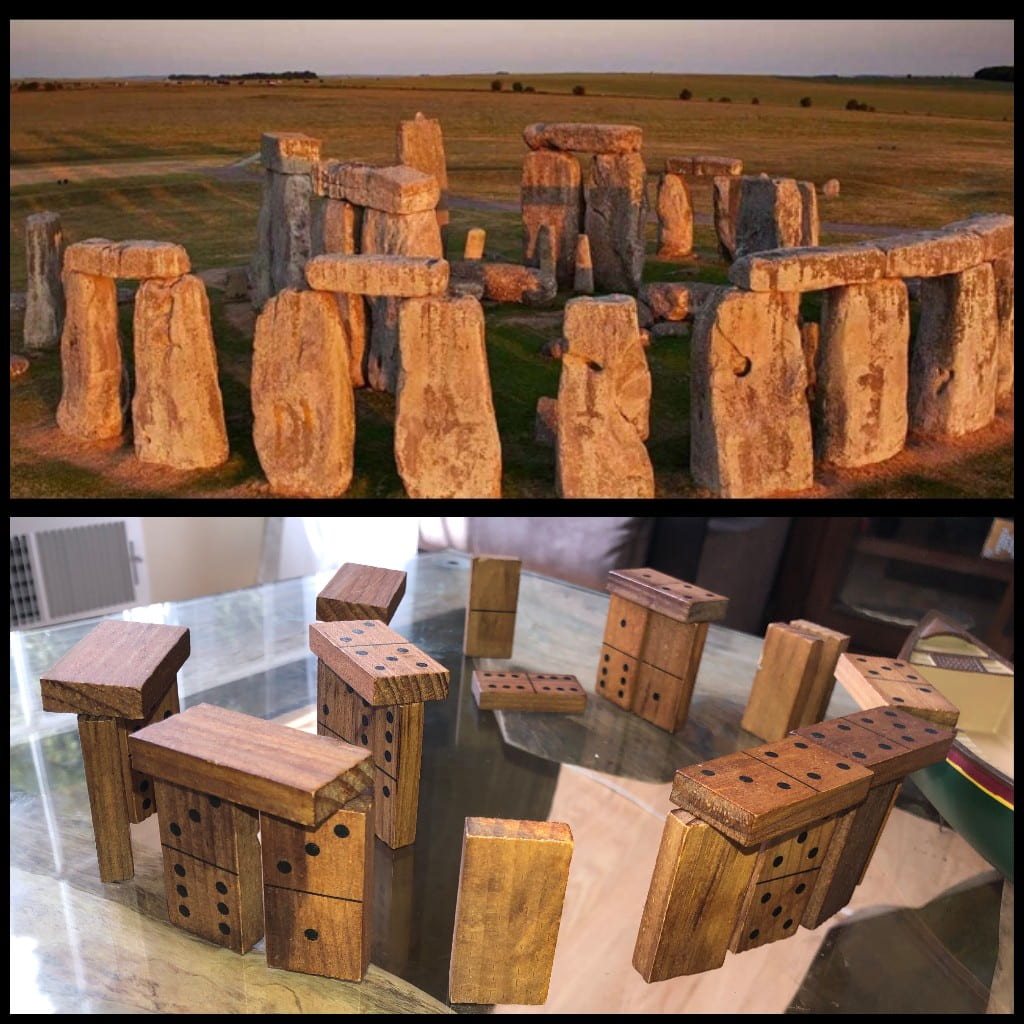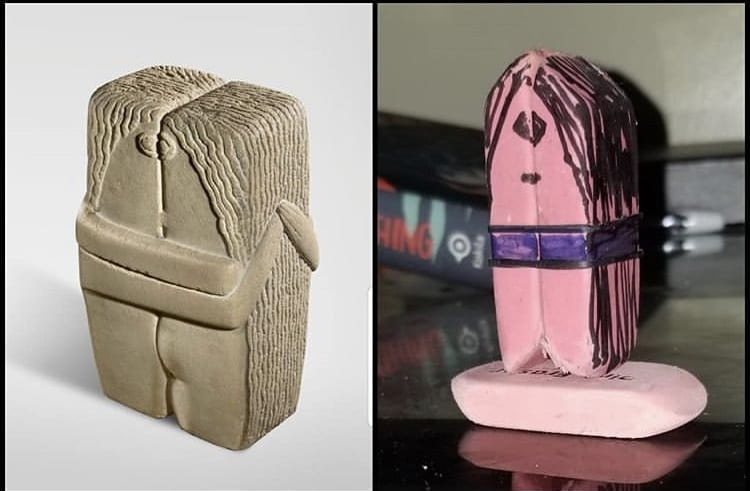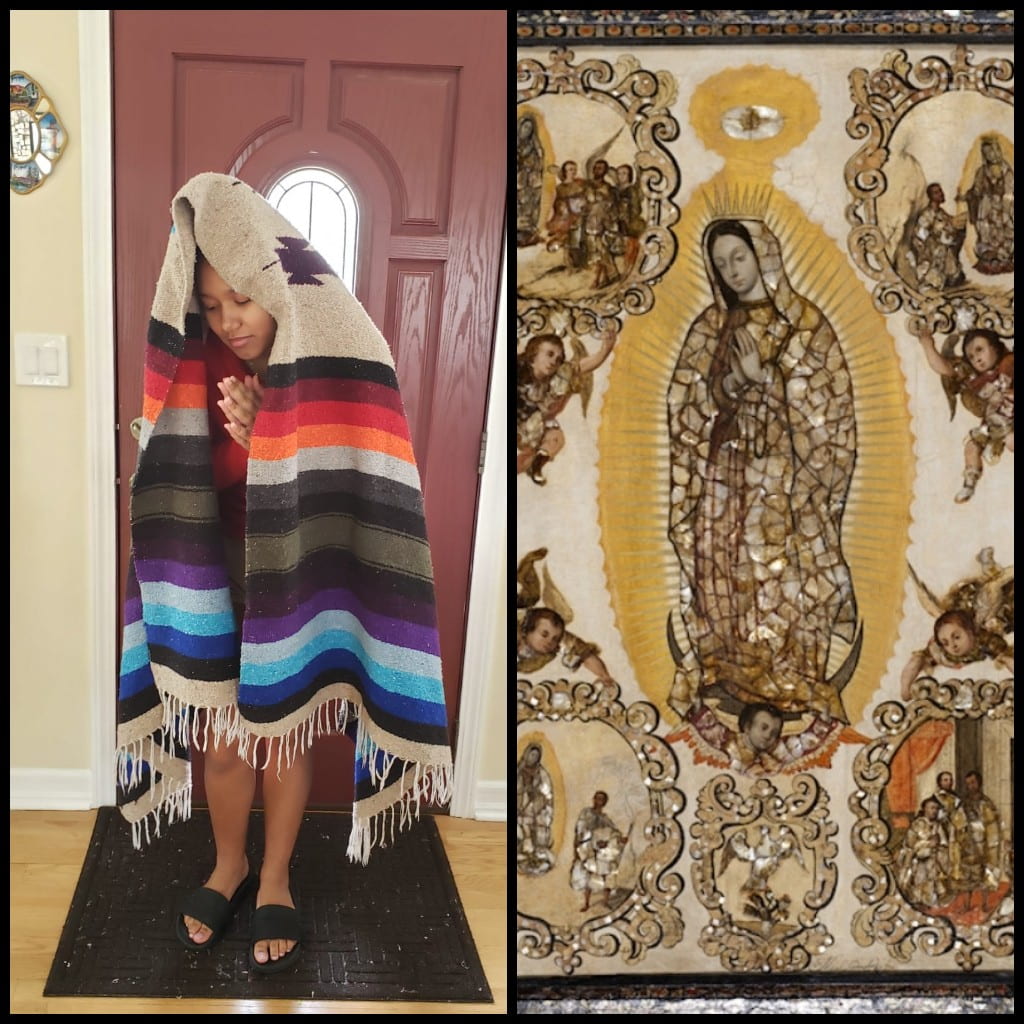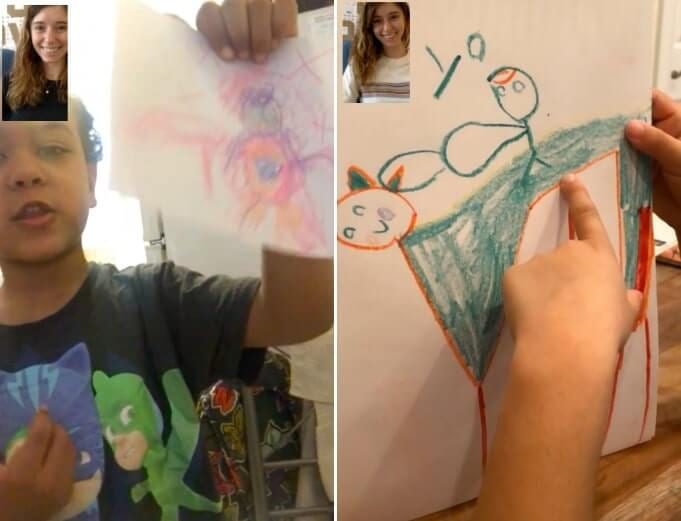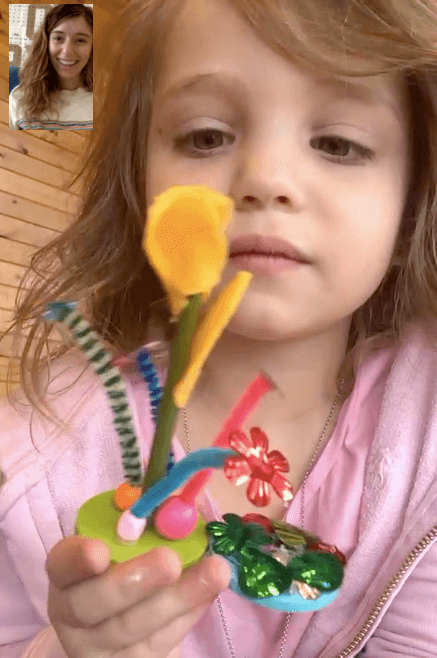Research and Final Project Spring 2023: Restorative Justice in the Art Classroom – Liz Jones
My research began as an exploration of how I could implement restorative practices in my classroom, as a new teacher coming into a school-in-crisis mid-year. Early attempts at holding circles and going over group norms in more structured, formalized ways taught me one thing: there was no moving forward with restorative practices without first learning my students’ baselines and building a solid relationship that would be worth restoring.
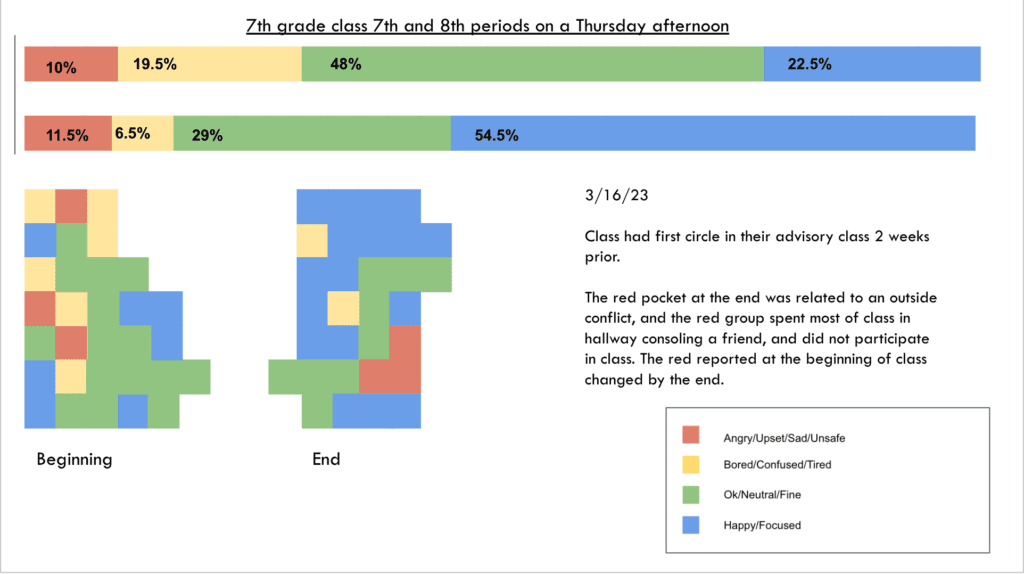 When I arrived at this conclusion, I started implementing classroom “Vibe Checks” at the beginning and end of select classes. These vibe checks were conducted on paper, with color-coded stickers and gave me an overview of the moods of my students and myself on any given day. I made notes about work happening in the classroom, and recorded the data, both paying attention to percentages of moods, how they shifted, and where these moods were mapped out within the classroom. This approach had some limitations, including the amount of time it took, the fact that it didn’t track individual students, and that it allowed little time or space for intervention or follow-up questions.
When I arrived at this conclusion, I started implementing classroom “Vibe Checks” at the beginning and end of select classes. These vibe checks were conducted on paper, with color-coded stickers and gave me an overview of the moods of my students and myself on any given day. I made notes about work happening in the classroom, and recorded the data, both paying attention to percentages of moods, how they shifted, and where these moods were mapped out within the classroom. This approach had some limitations, including the amount of time it took, the fact that it didn’t track individual students, and that it allowed little time or space for intervention or follow-up questions.
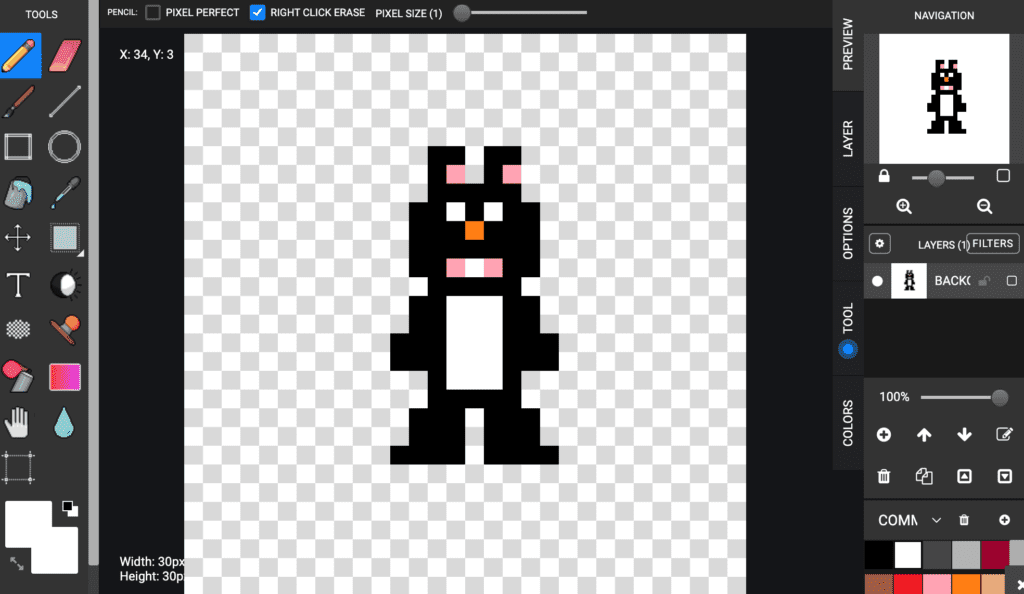
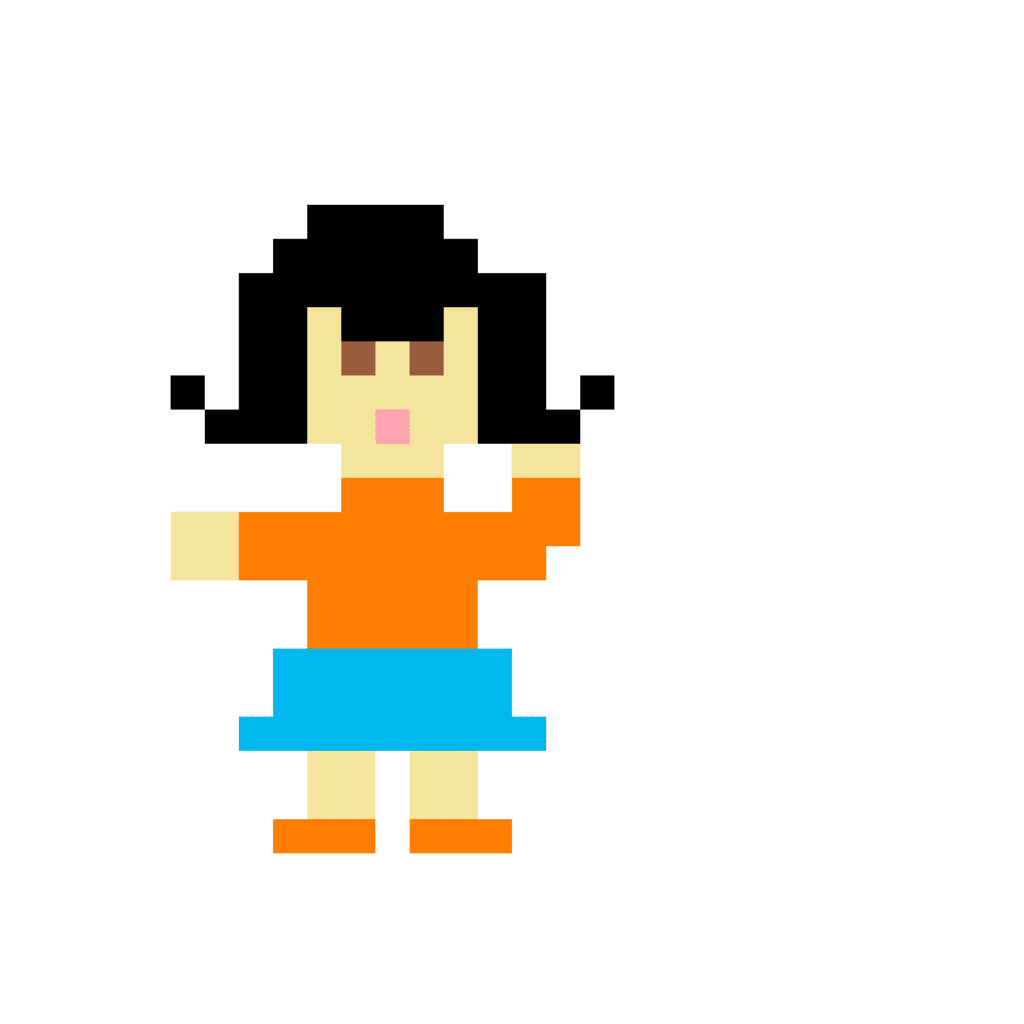
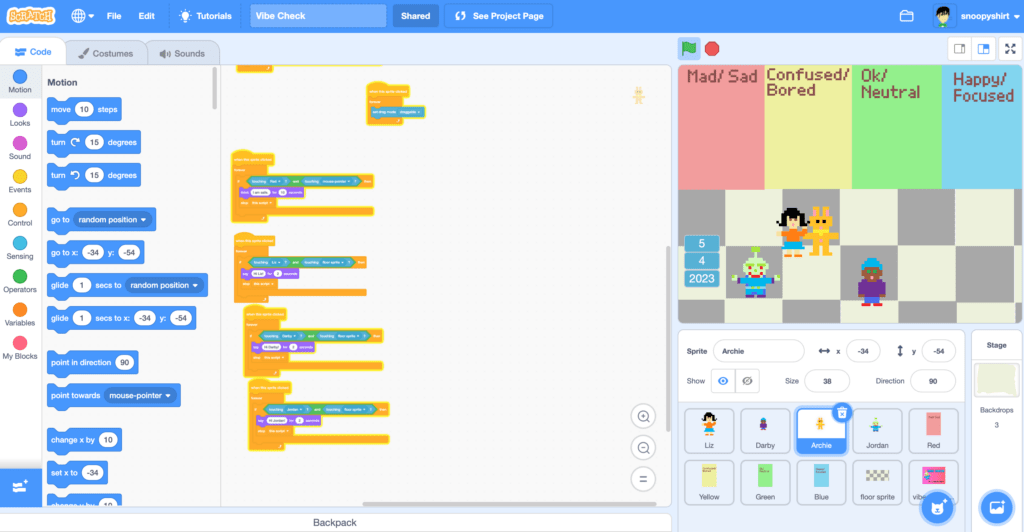
In search of a more accessible and easily-trackable system, I came up with the idea to turn the vibe checks into an interactive, gamified procedure using the Scratch coding software. Students move an avatar they created across the screen to a color-coded section matching their mood. Personalized prompts give students affirmations or next steps. When they are not selecting moods, avatars can greet one another on the floor, creating a virtual hang-out space as well. Scratch’s capabilities to share, modify, and collect data, make this a highly-personalizable and user-friendly tool for tracking how classes are doing as a whole and how individual students are doing over time. My hope is that this project can help teachers meet students where they are at and build a baseline image of how they can repair harm and build relationships in their own classrooms, as a part of a bigger practice of restorative justice and community-building.
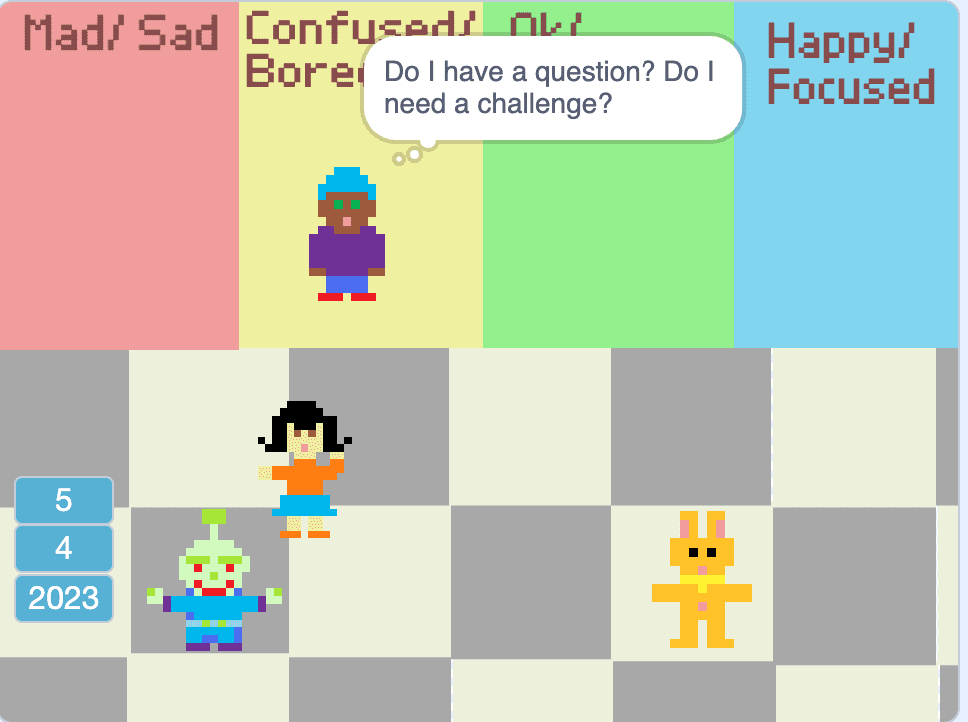
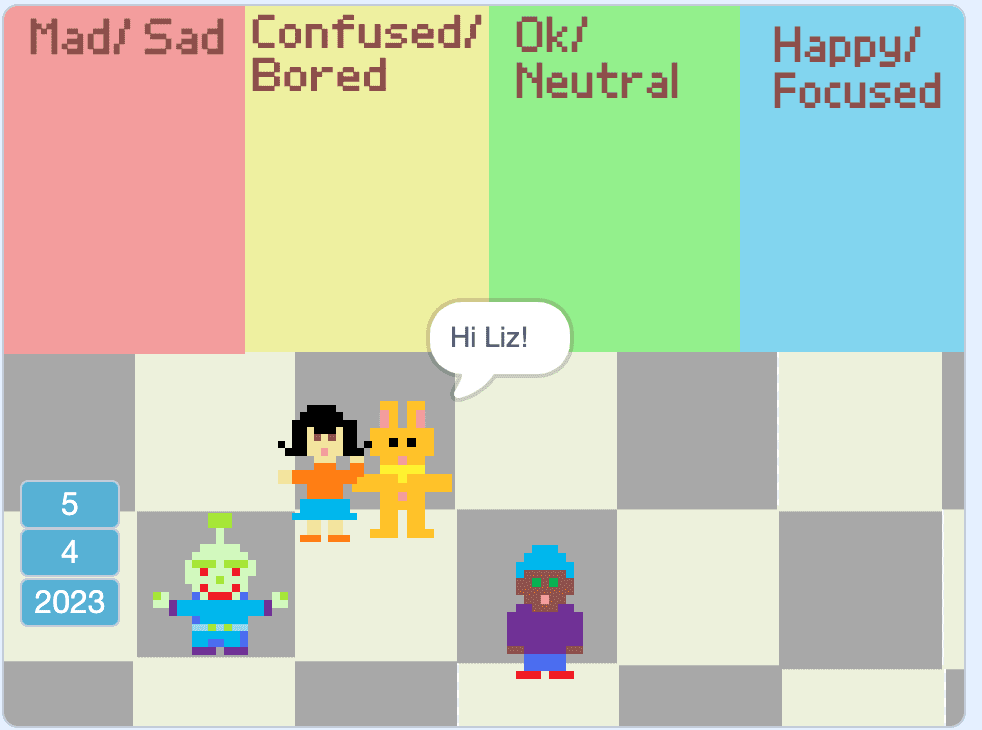
Access the Vibe Check by Liz Jones on Scratch: https://scratch.mit.edu/projects/844571719
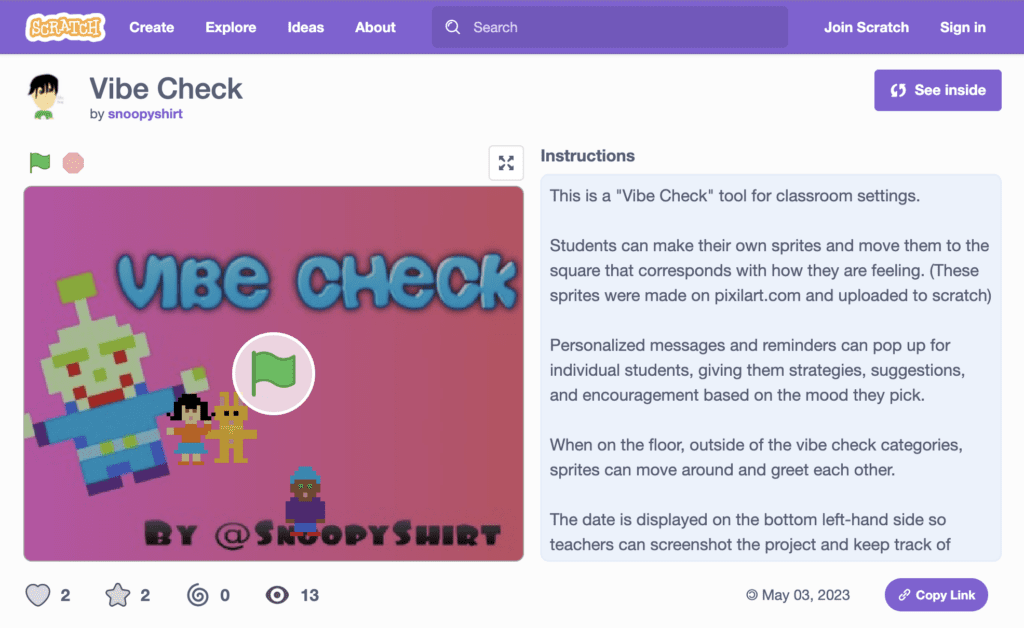
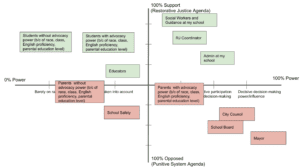
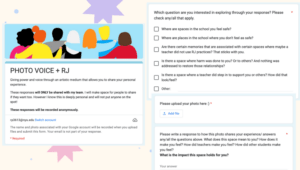
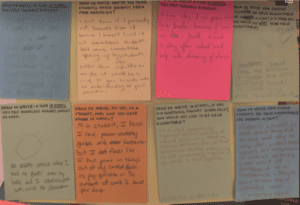
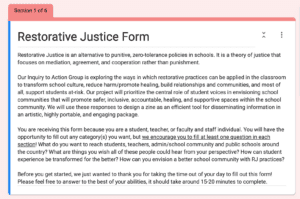
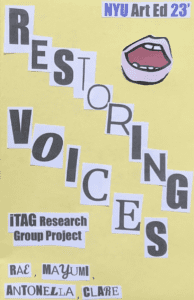 Download a copy of the
Download a copy of the 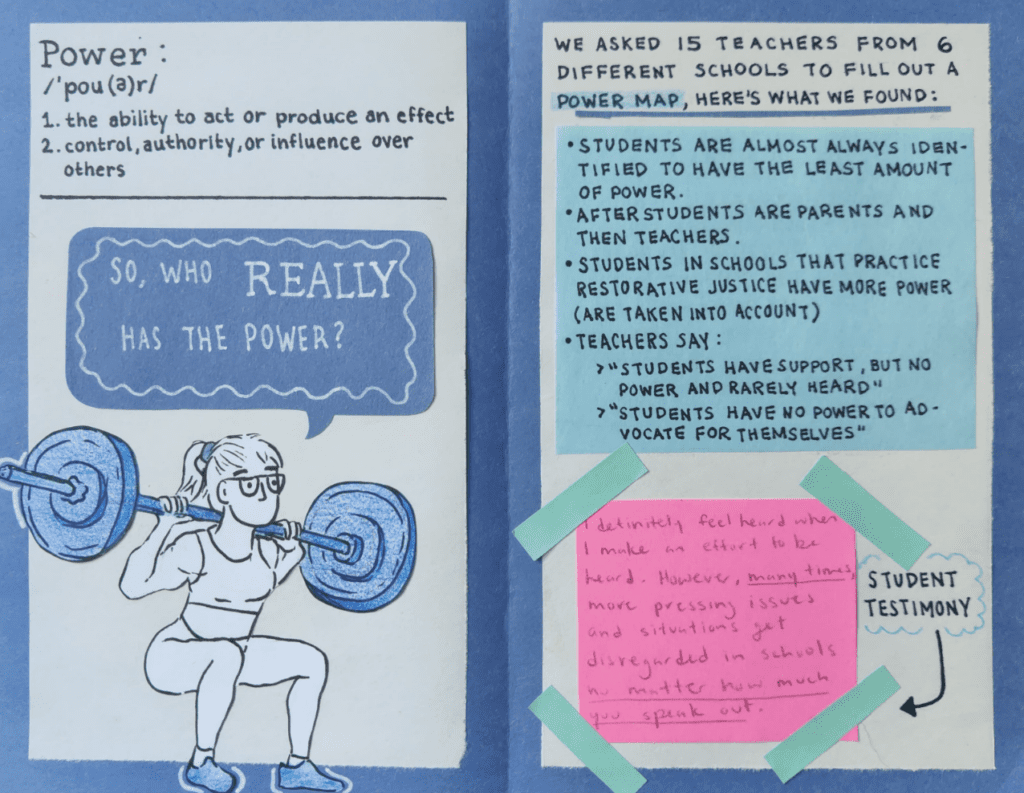
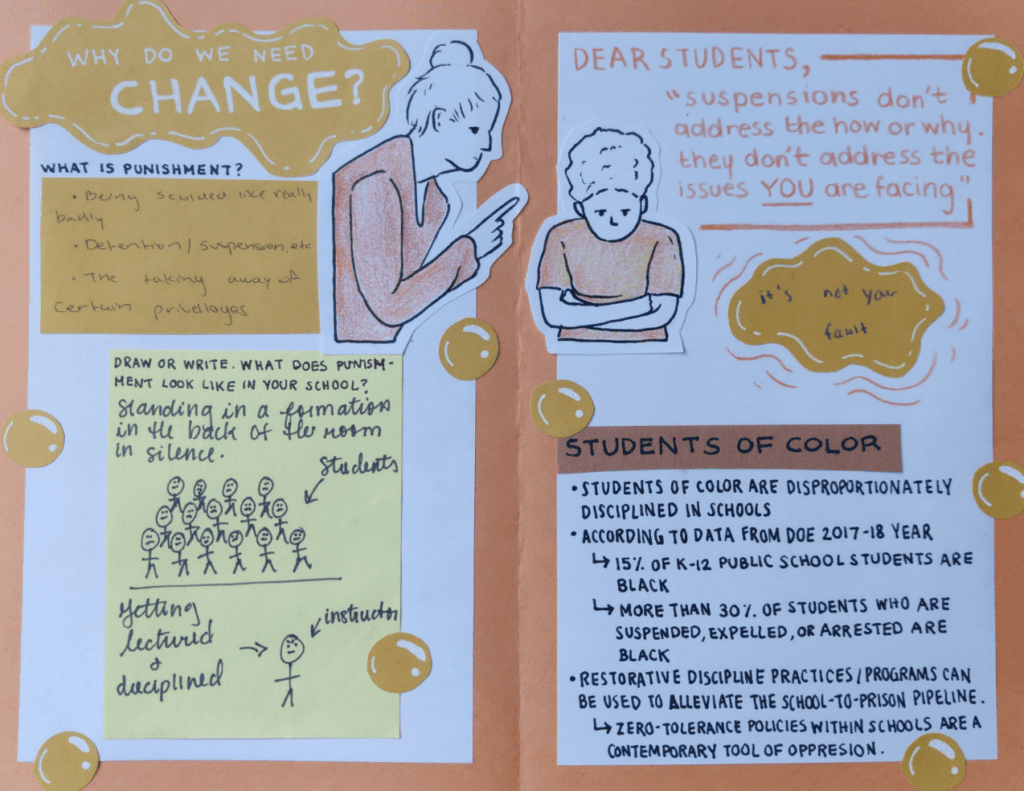
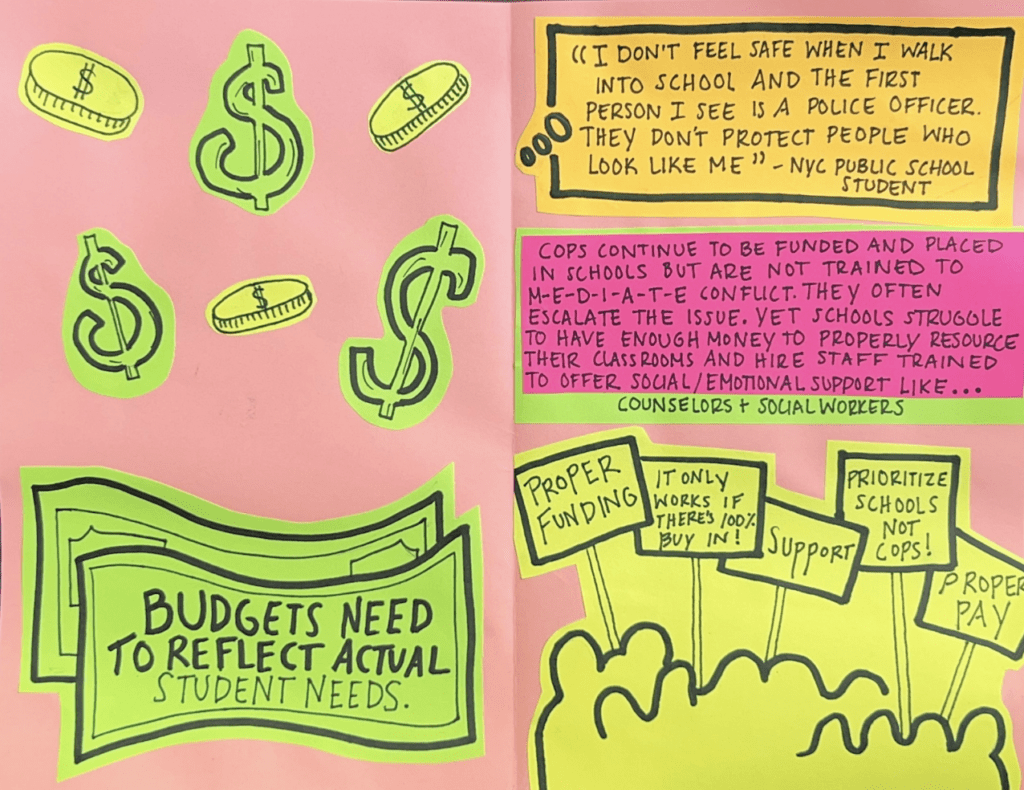
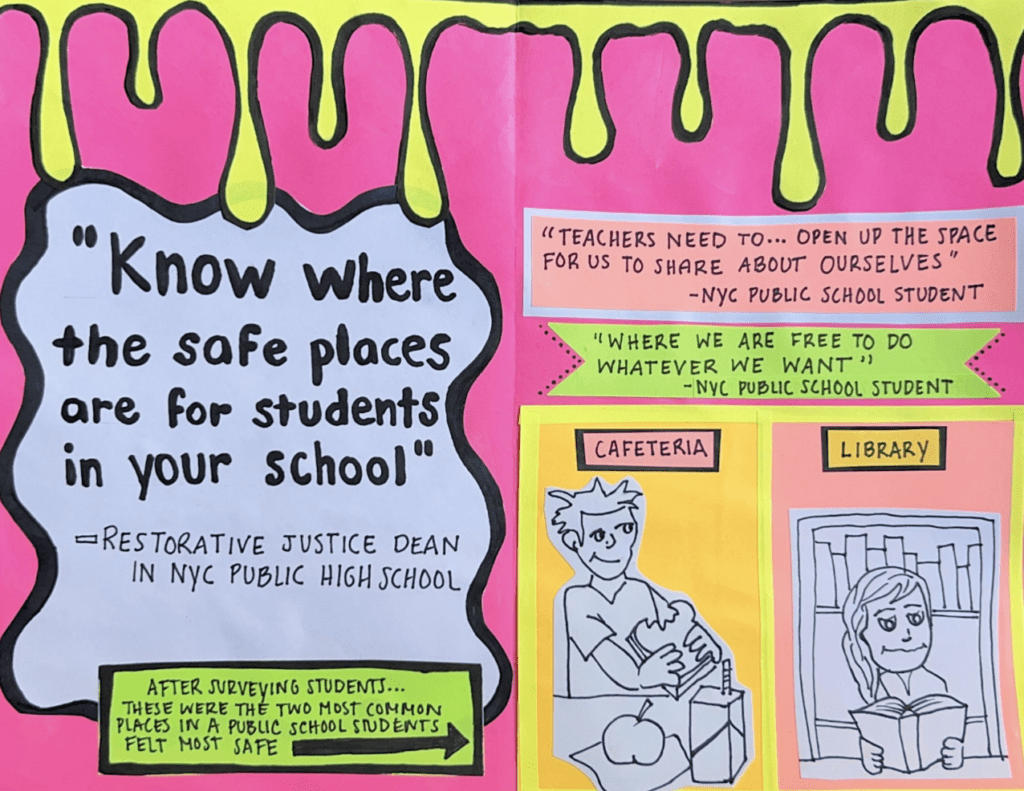
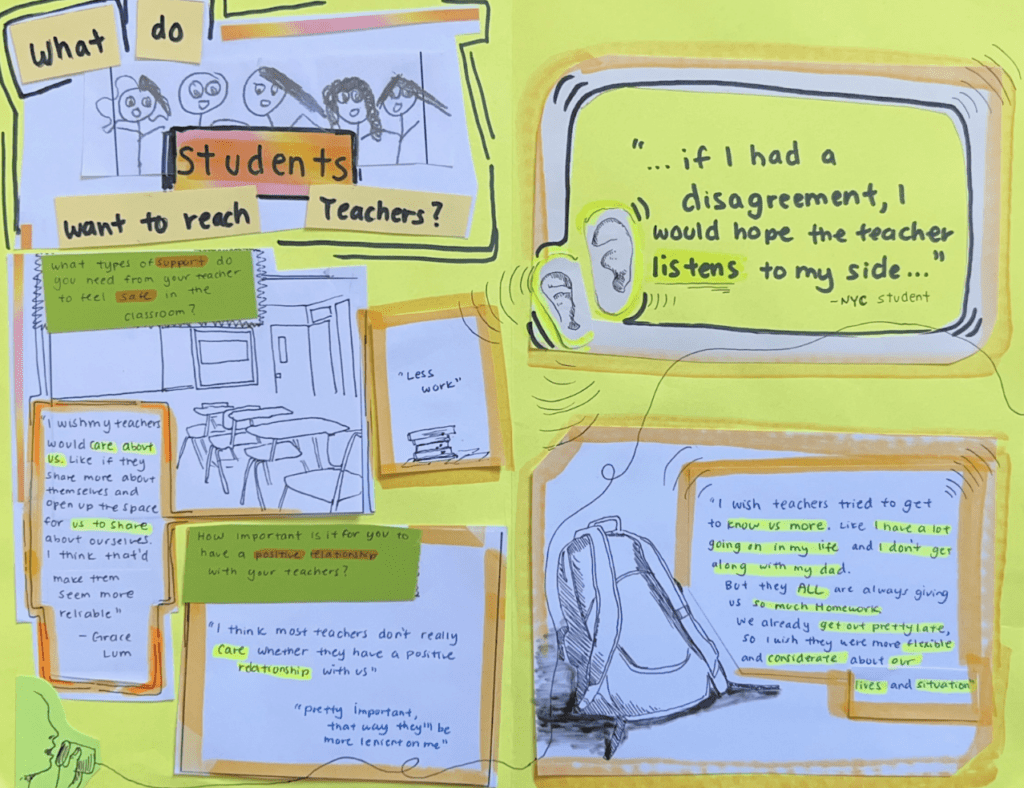
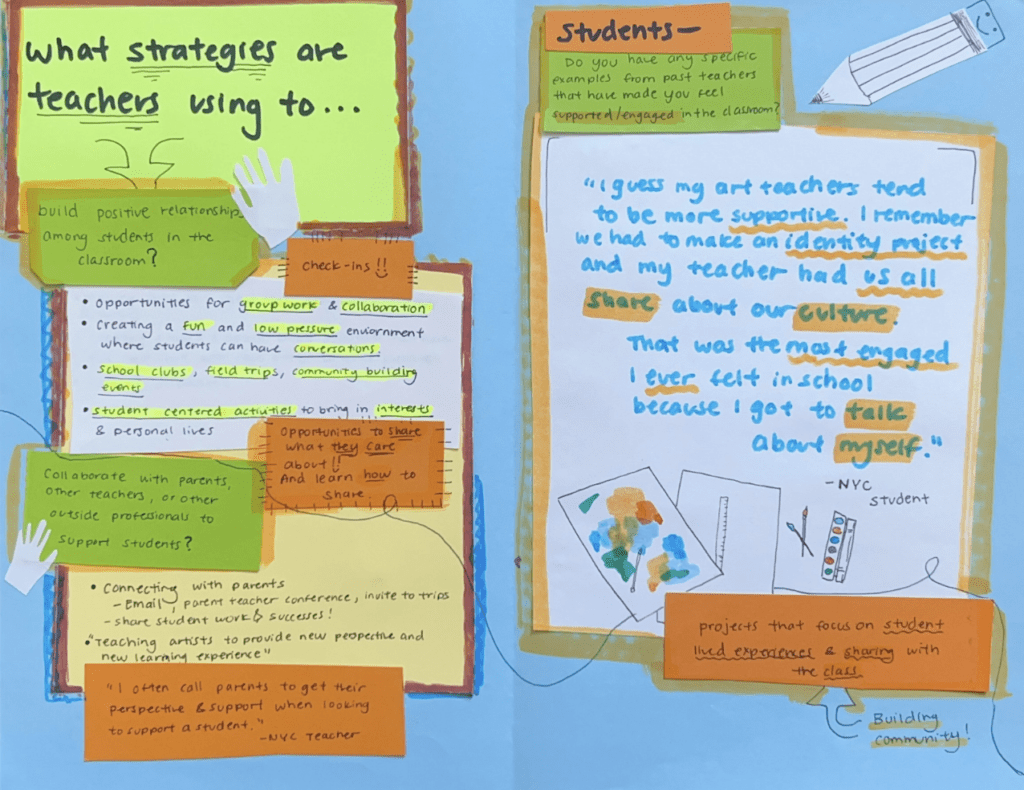
![Screenshot of Spotify page featuring the Art[Ed] of Wellness podcast with abstract visual.](https://bpb-us-e1.wpmucdn.com/wp.nyu.edu/dist/4/23266/files/2024/01/Screen-Shot-2024-01-10-at-2.31.57-PM-1024x585.png)
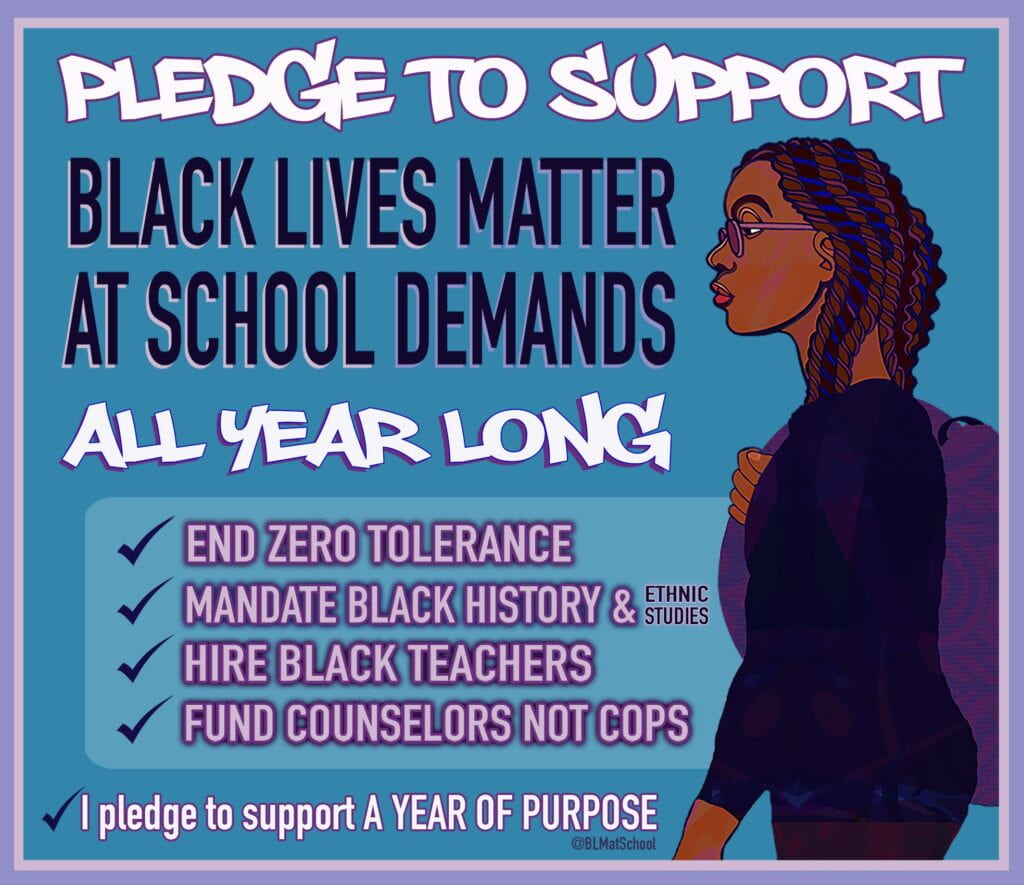
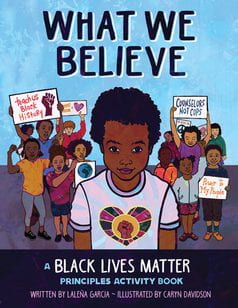
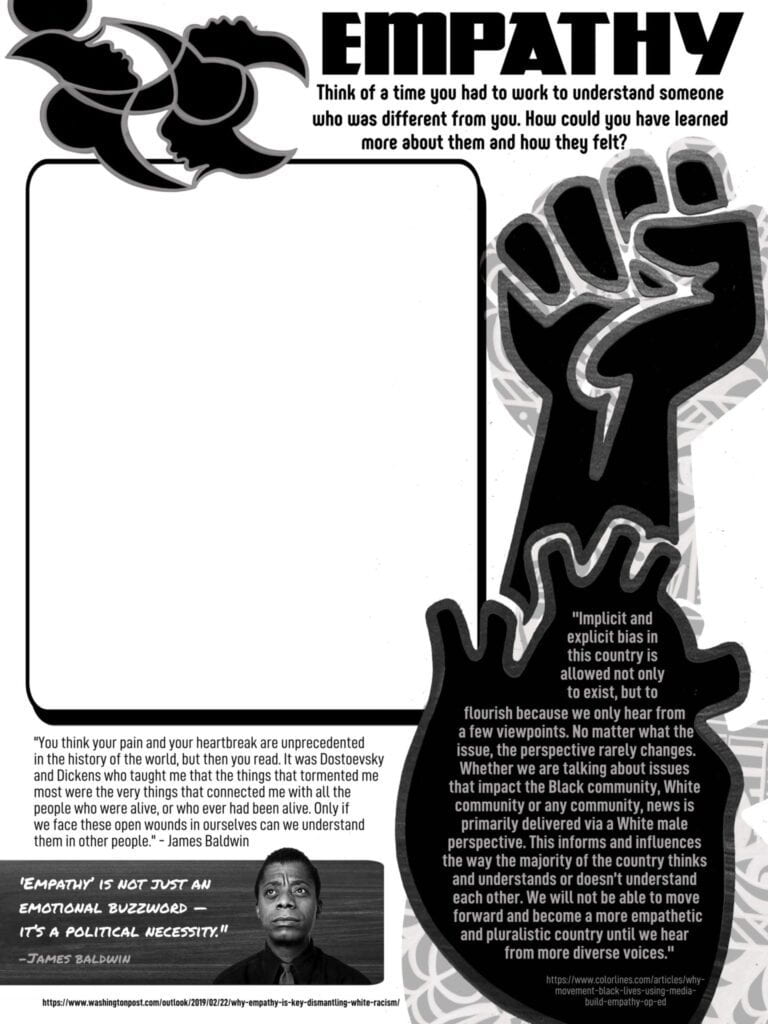
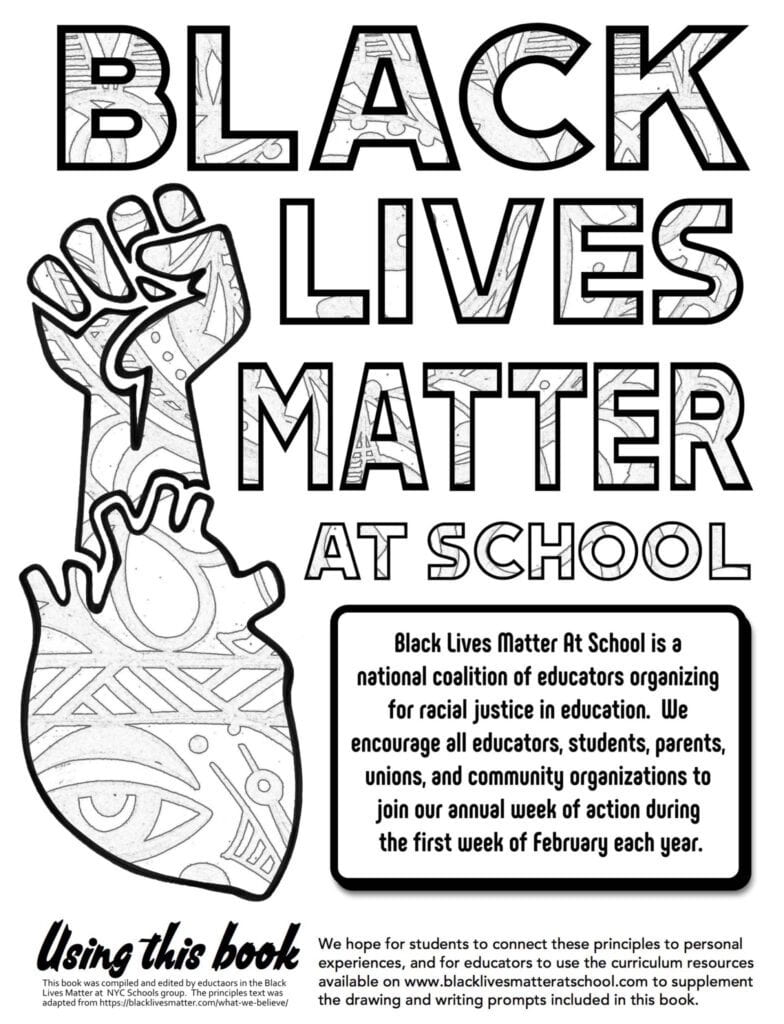
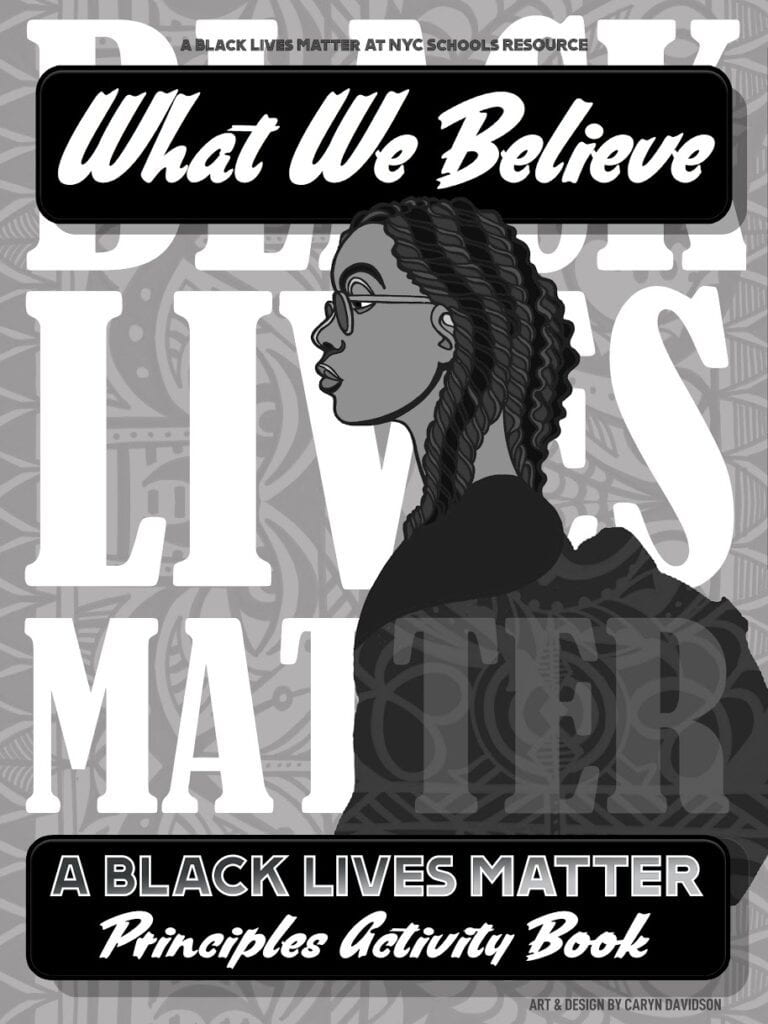
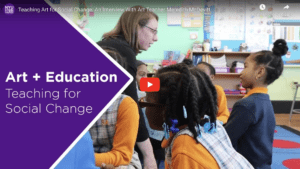
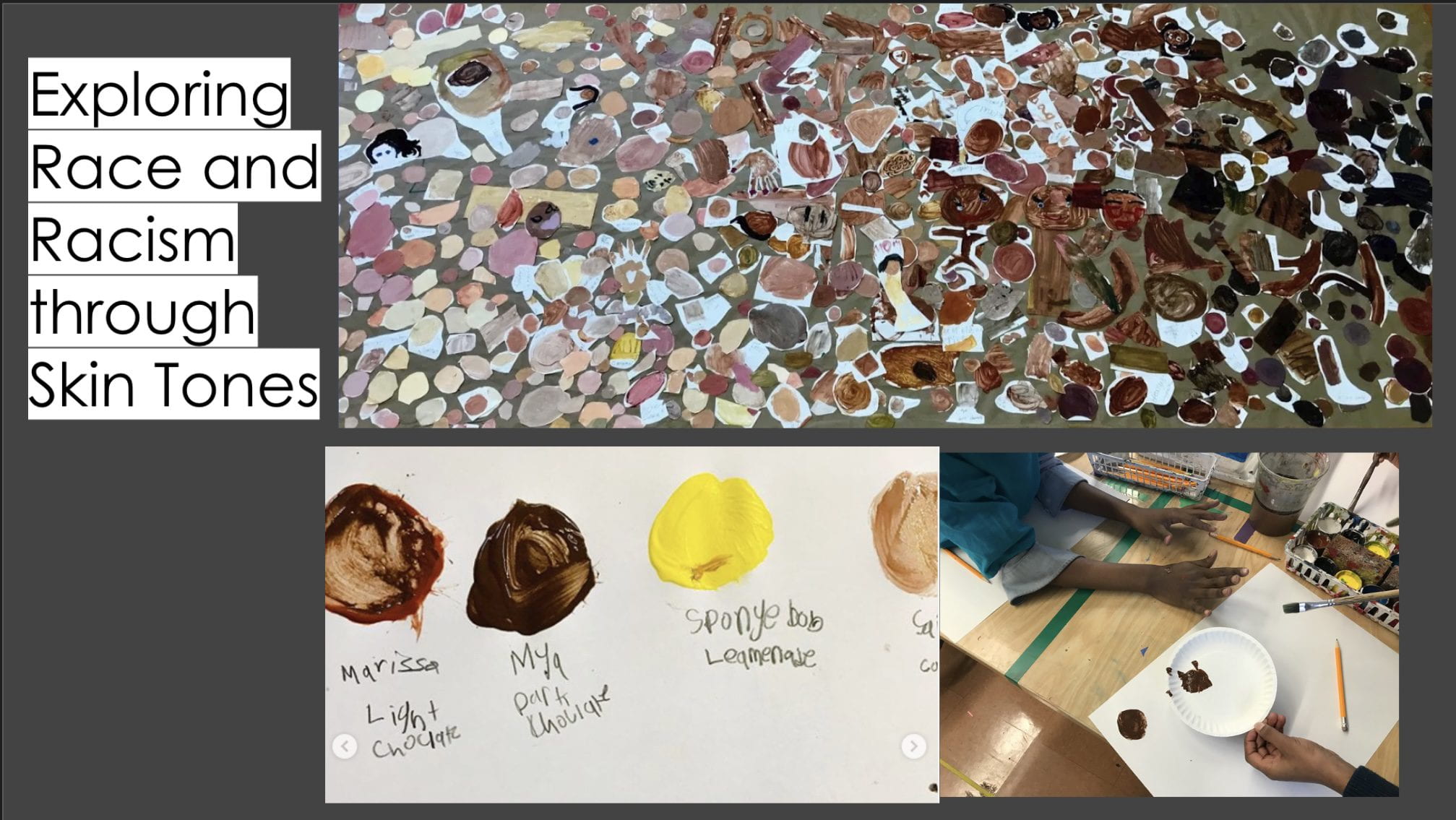
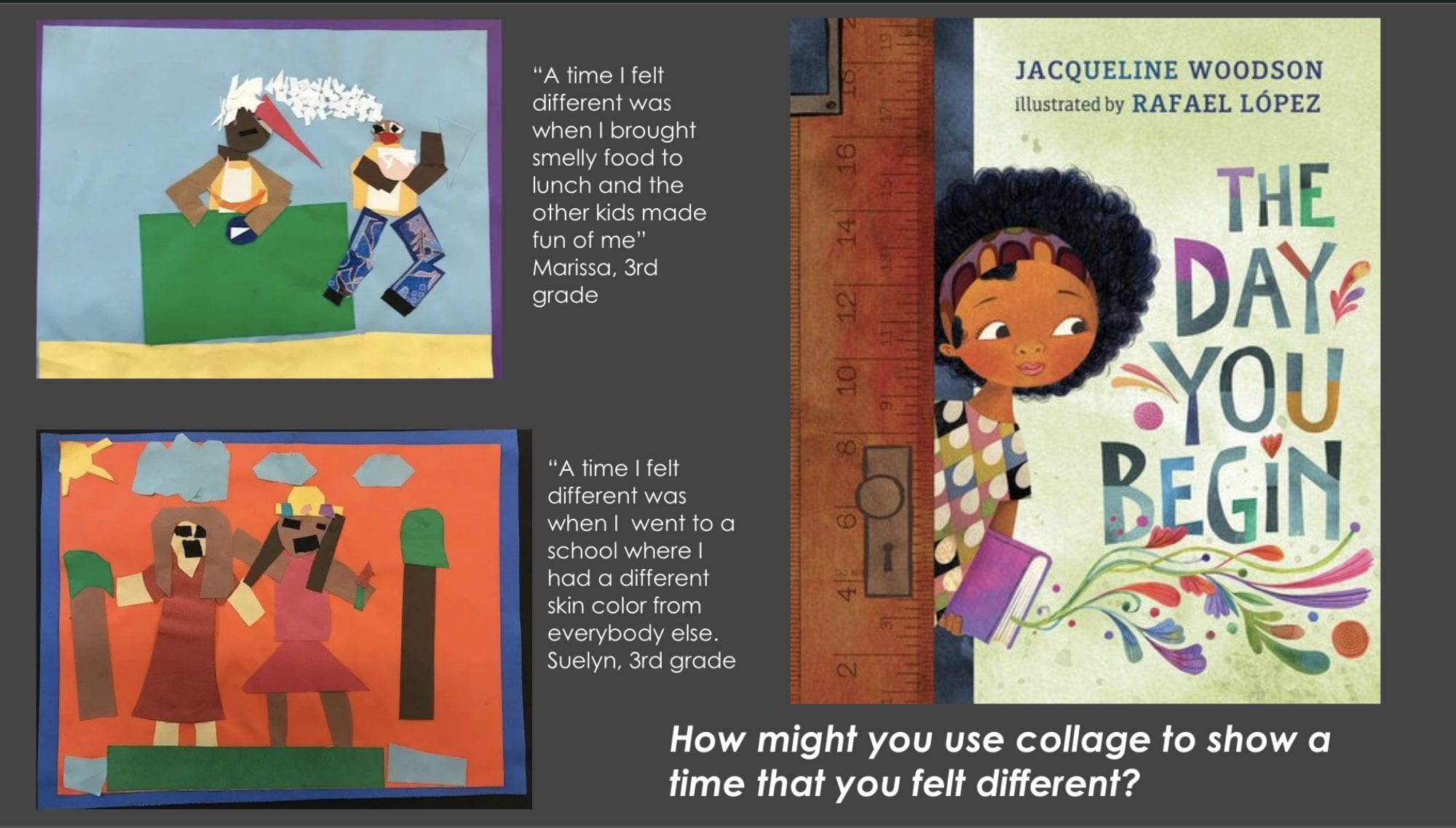
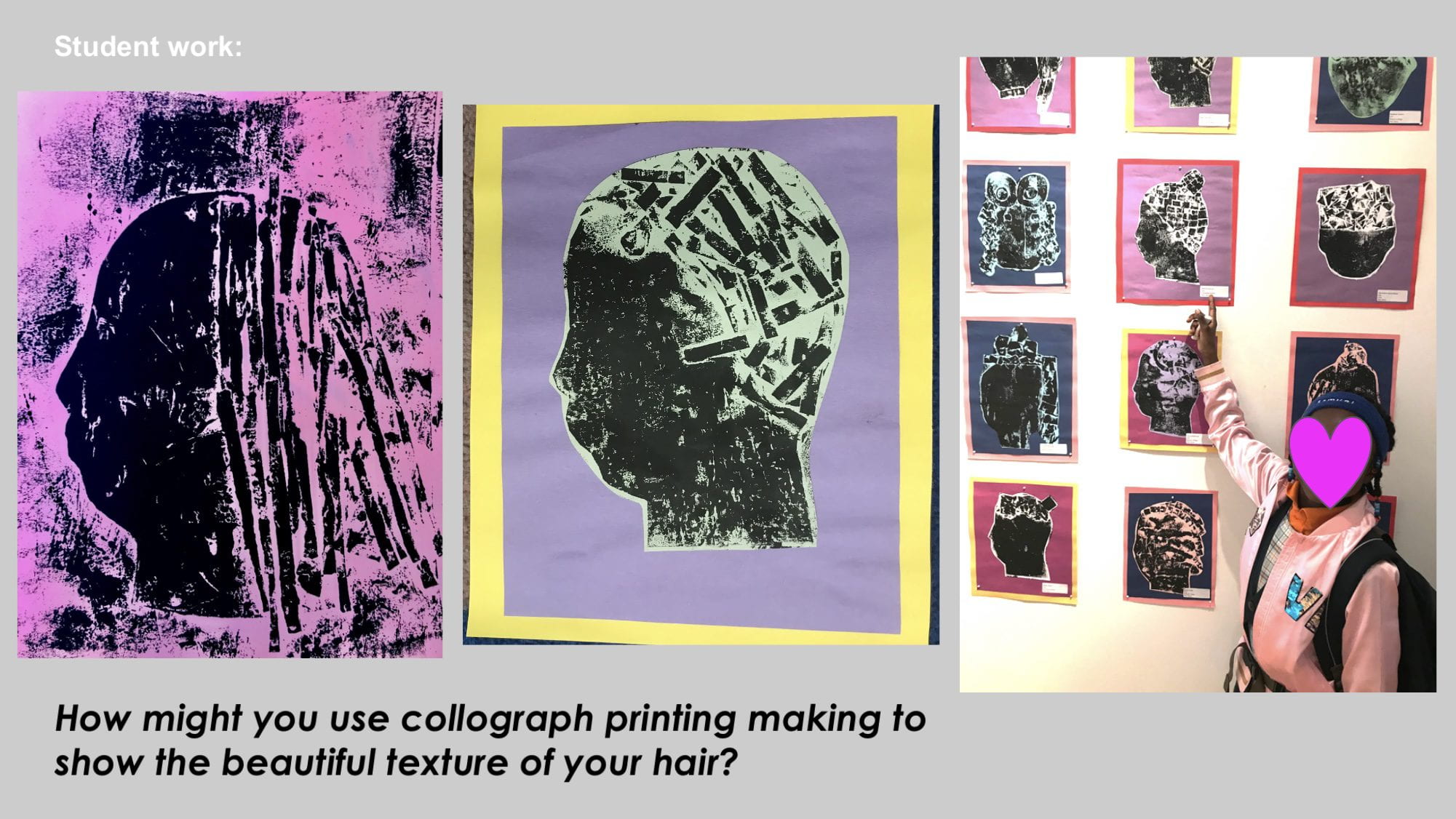
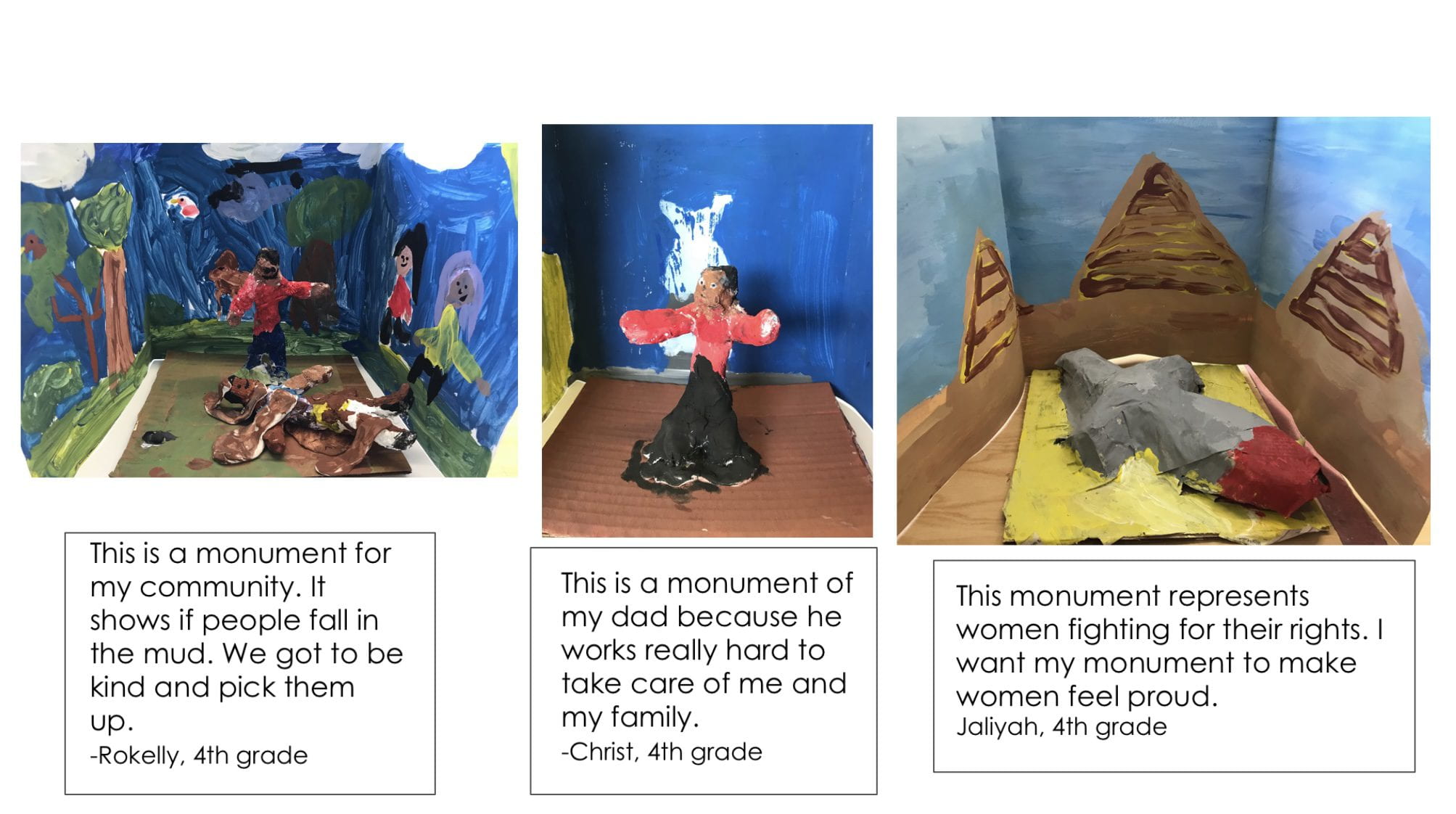
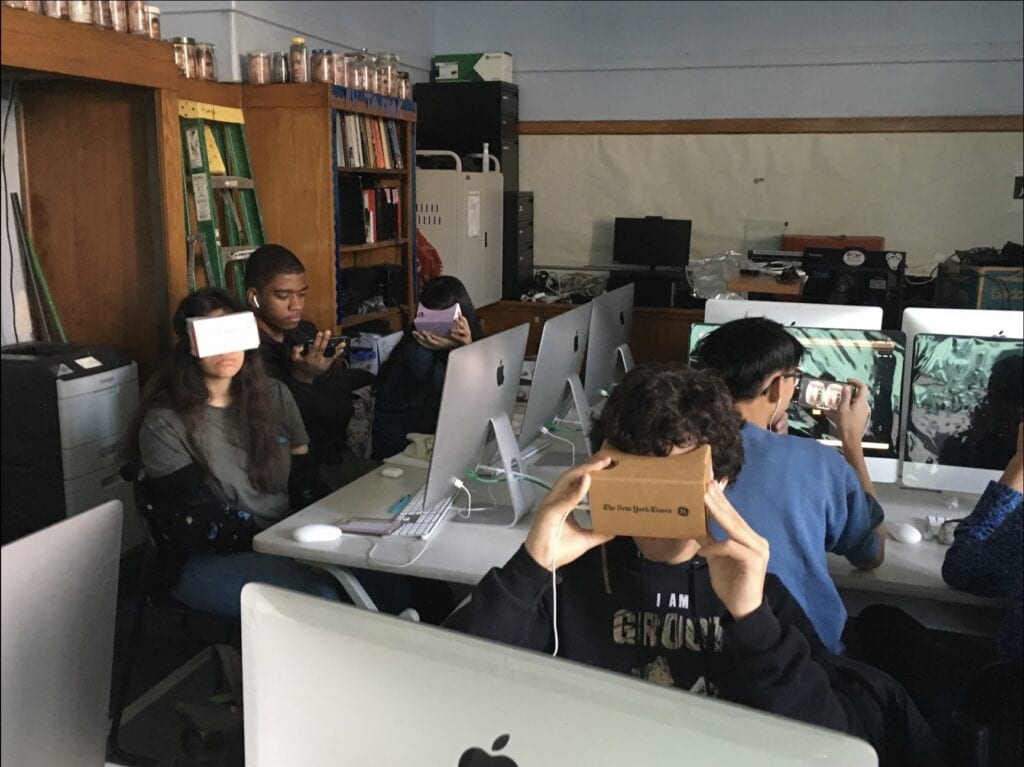
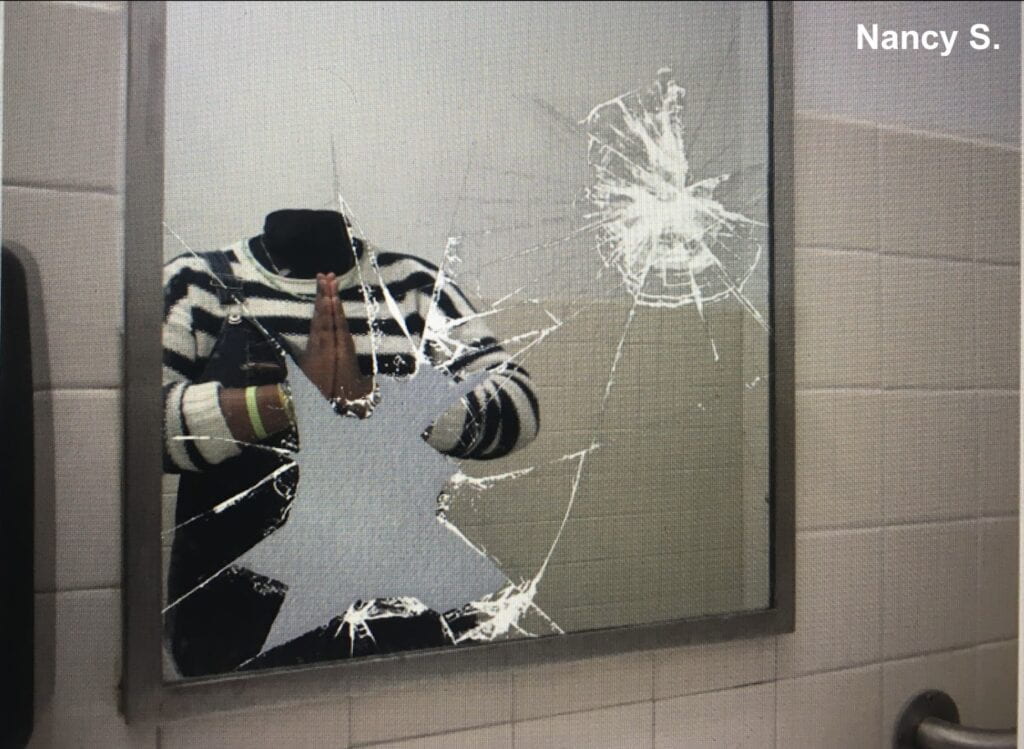
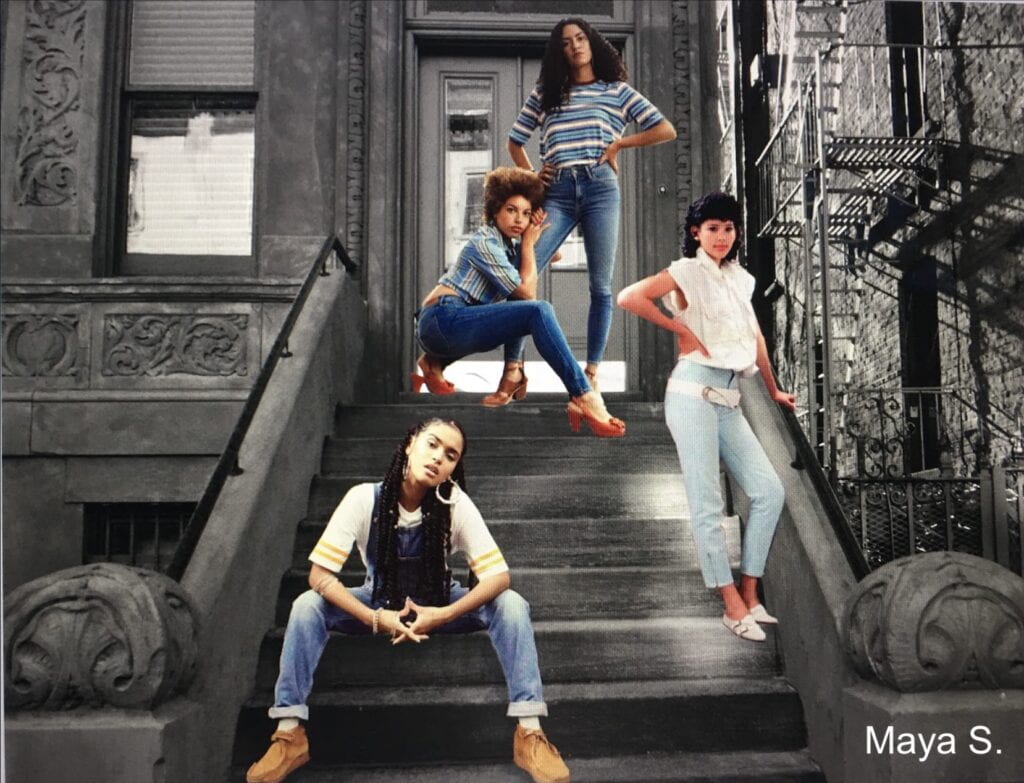
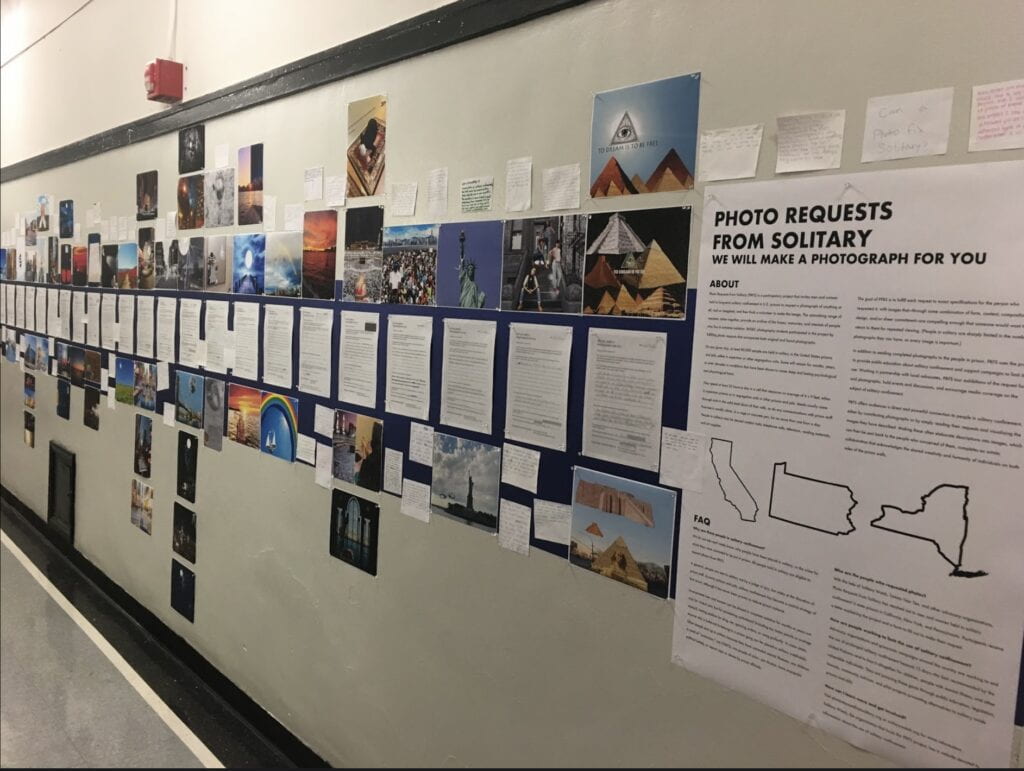
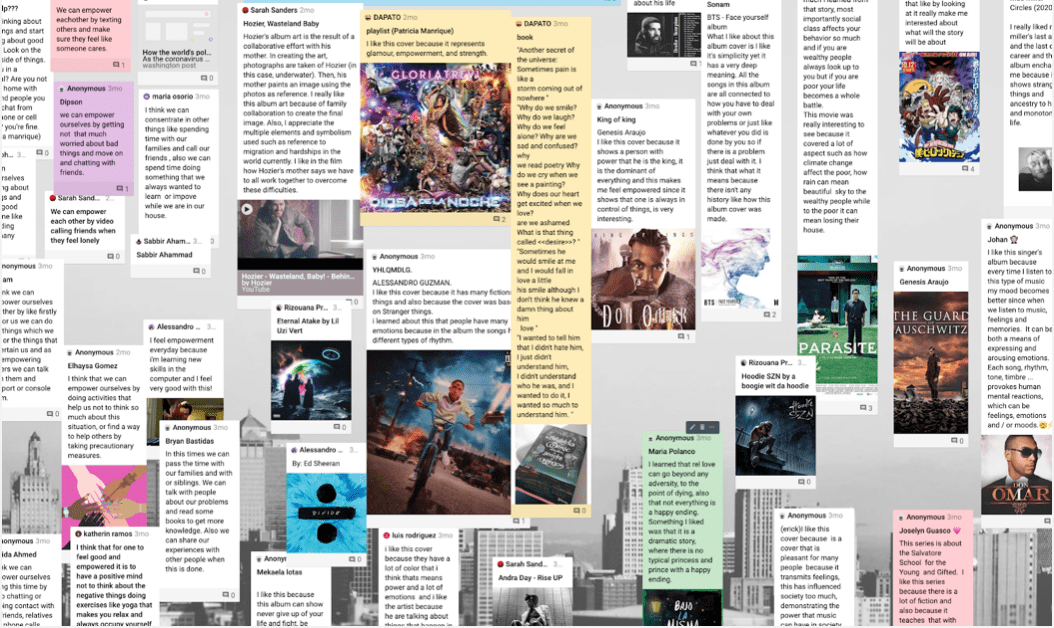
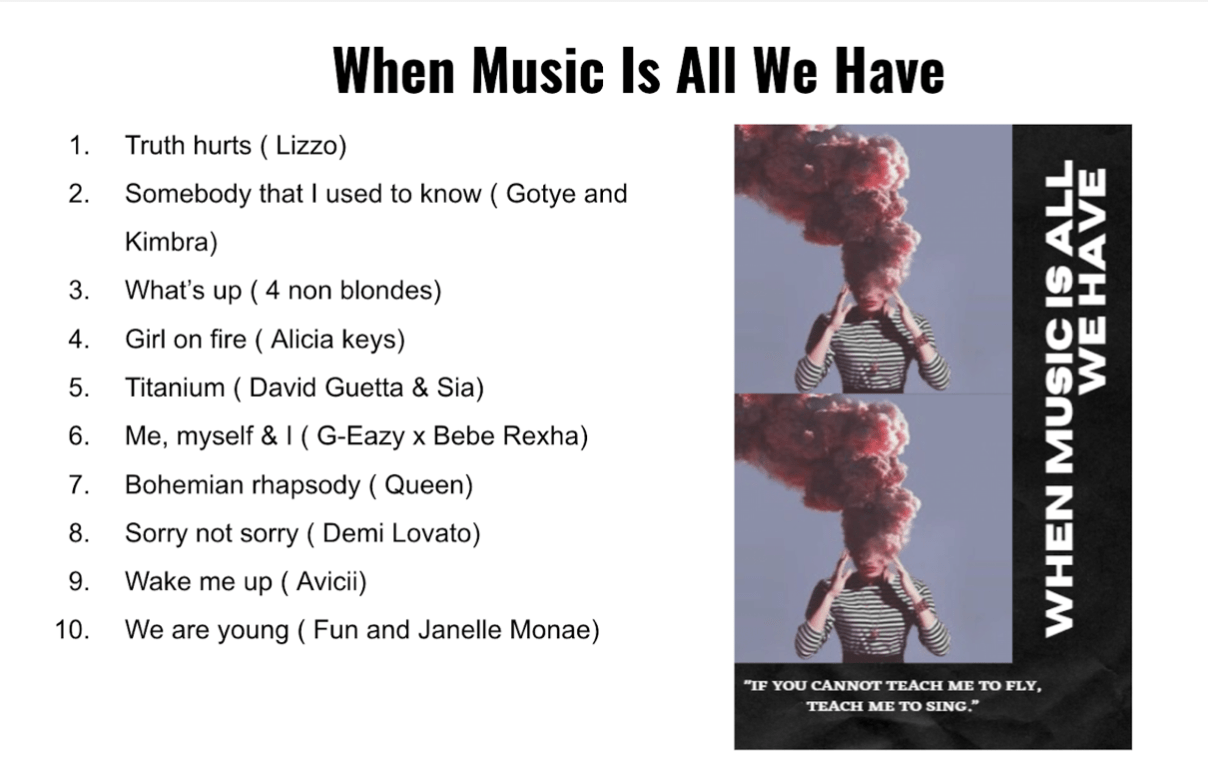
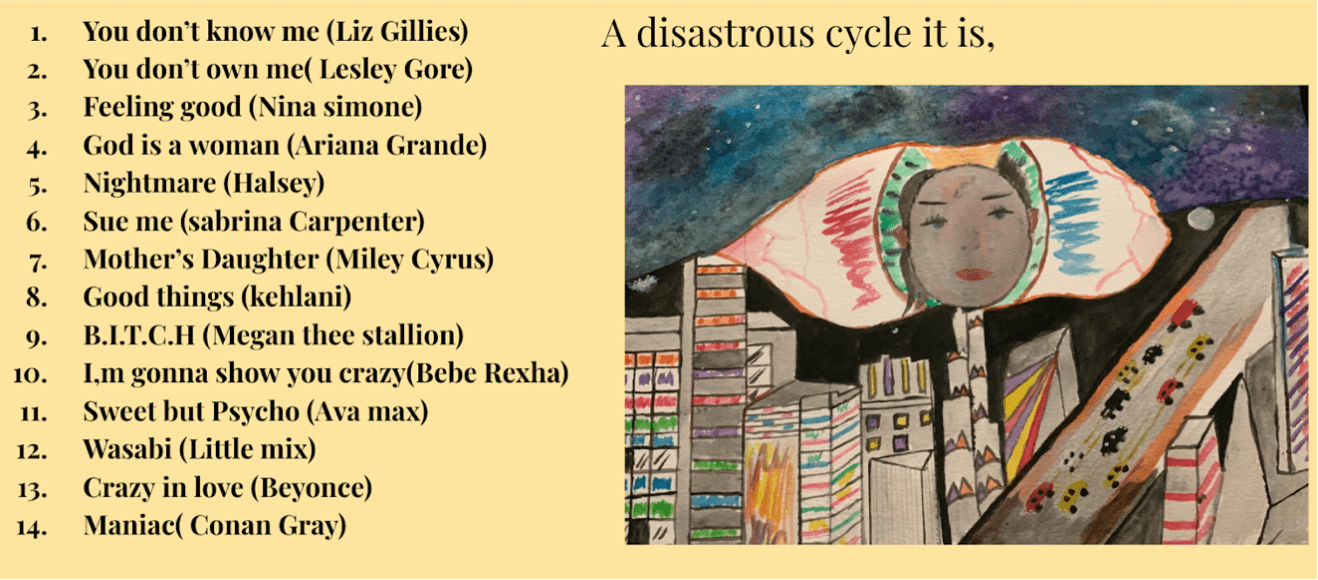
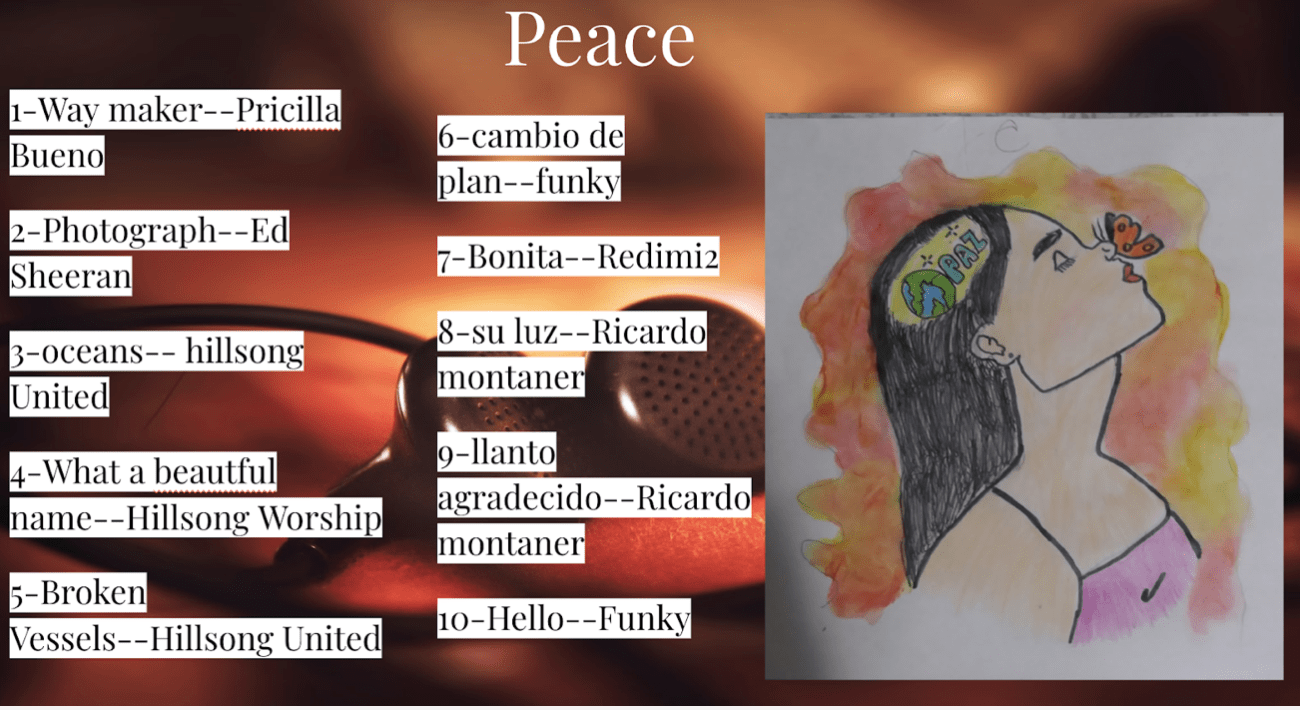
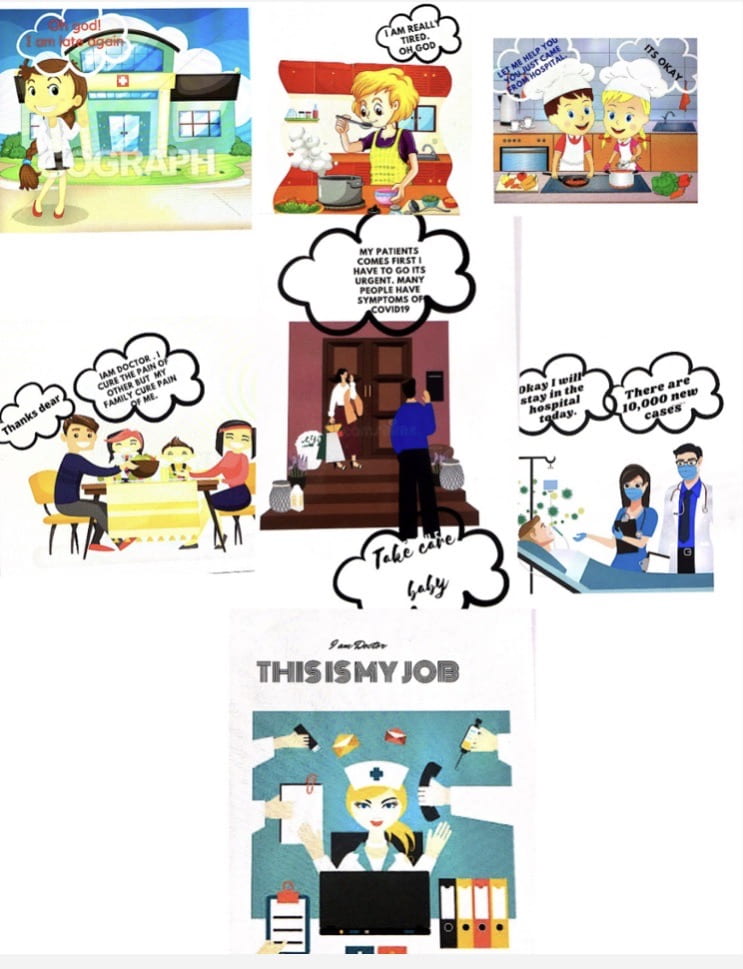
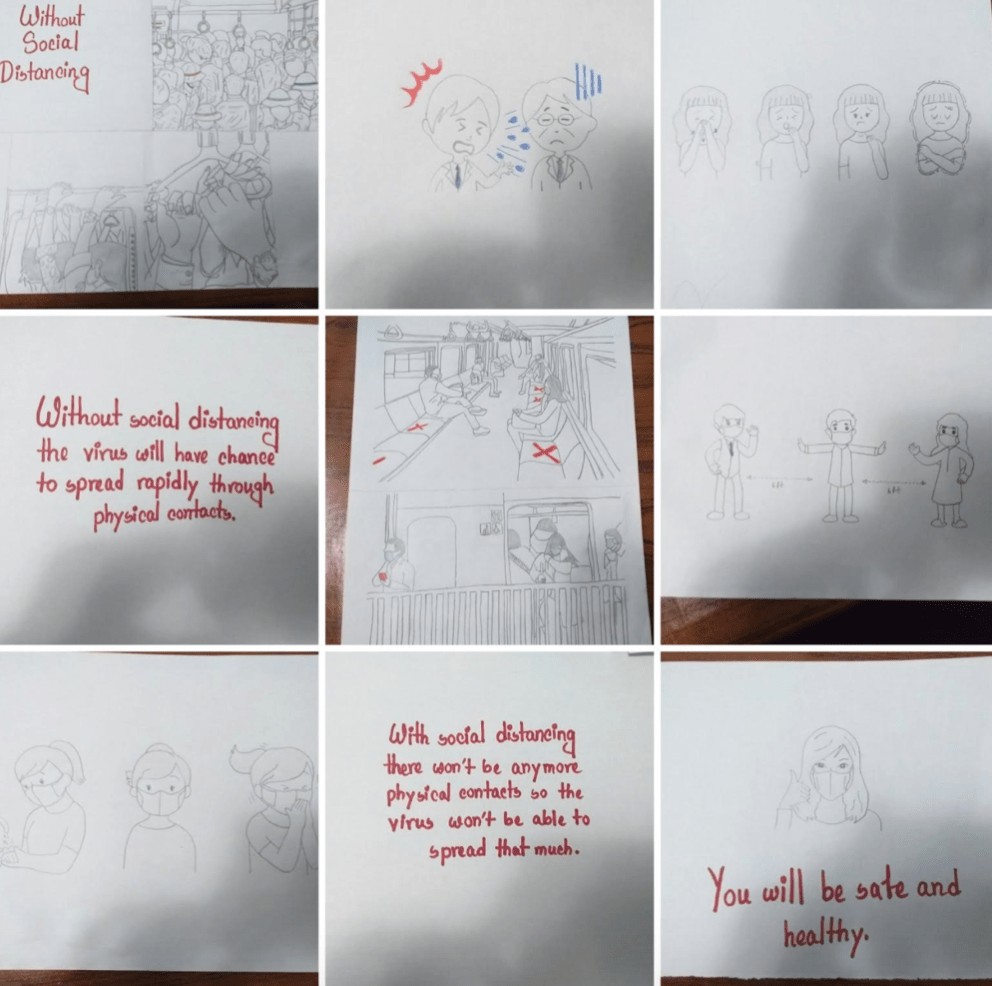
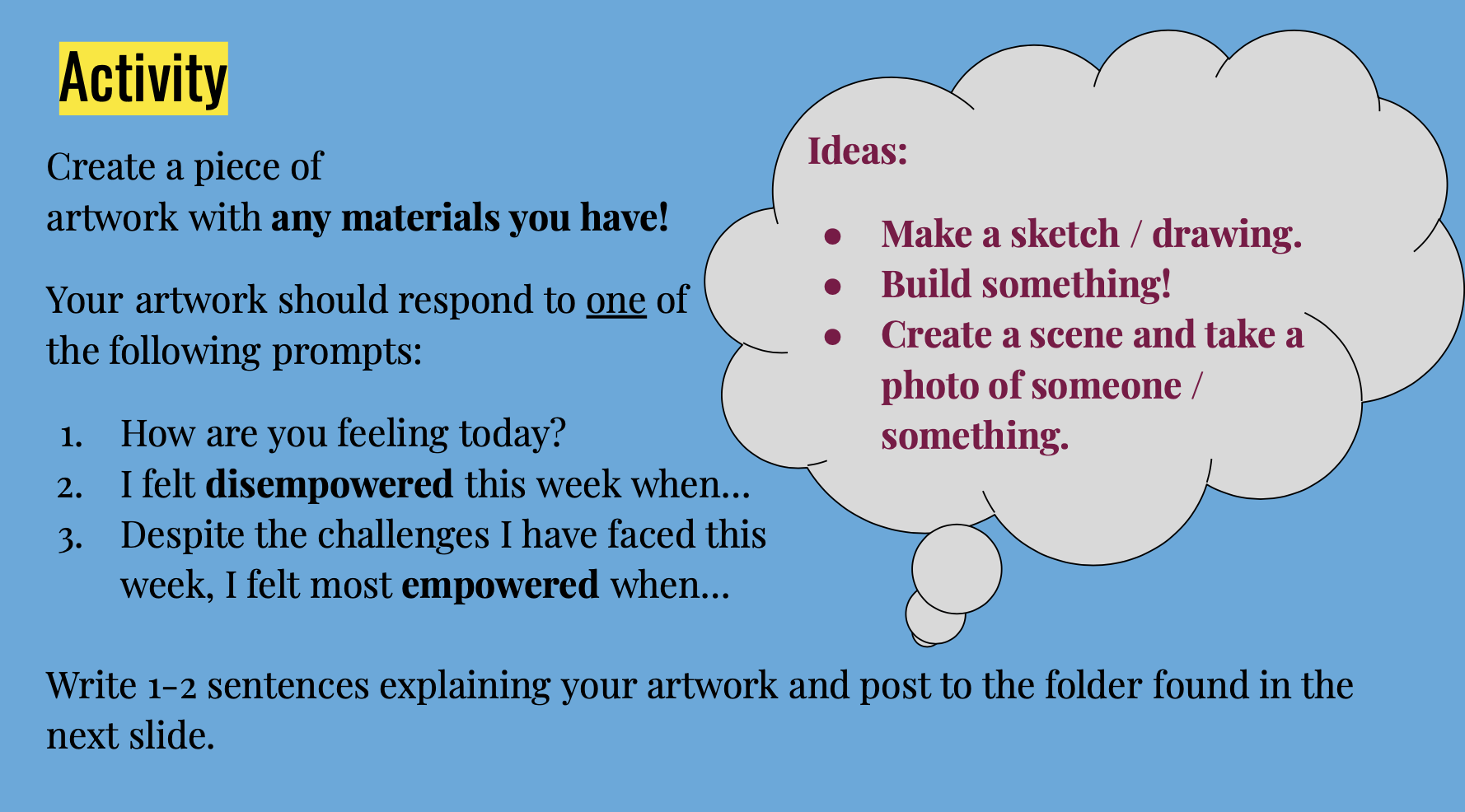
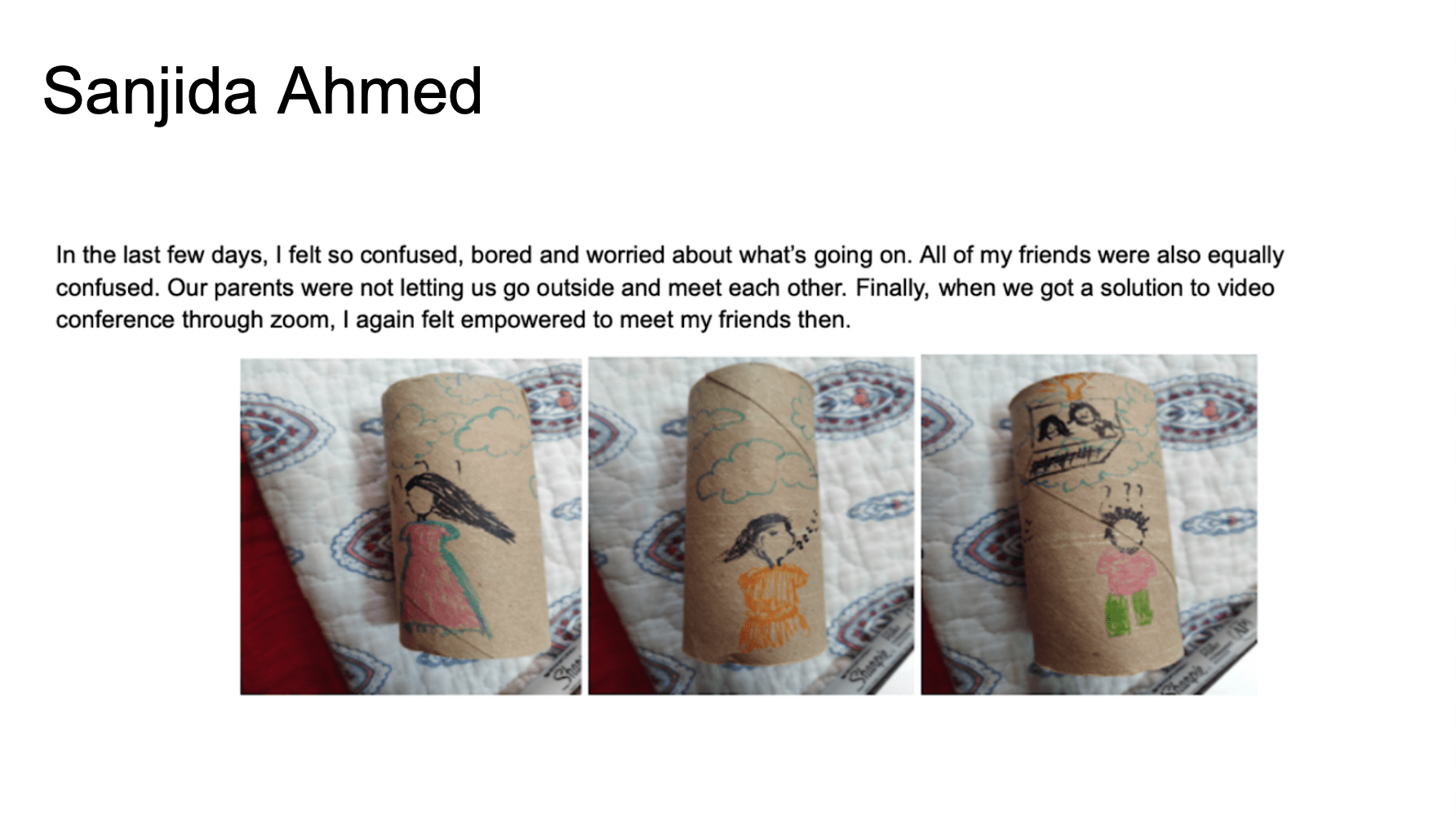
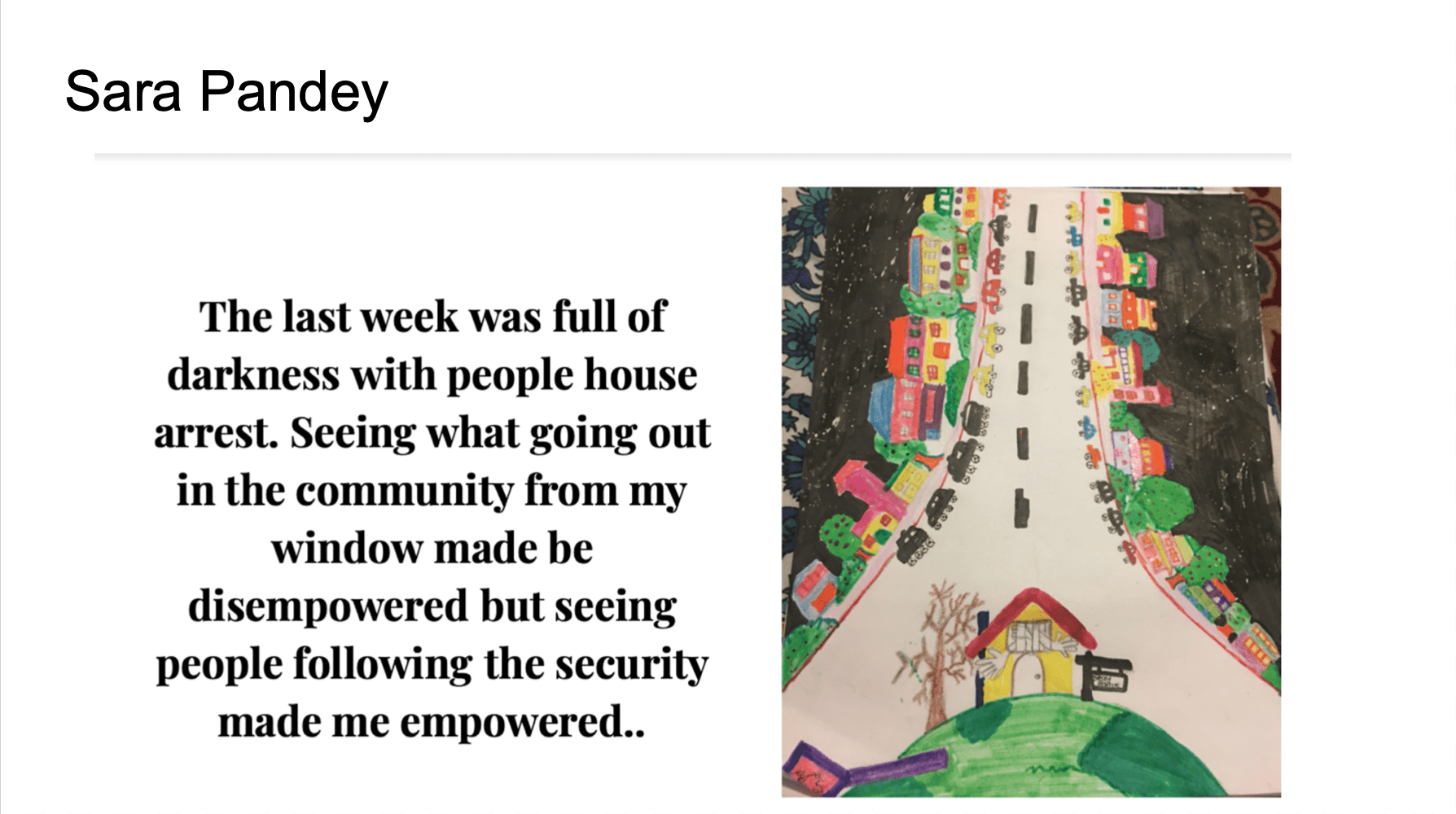
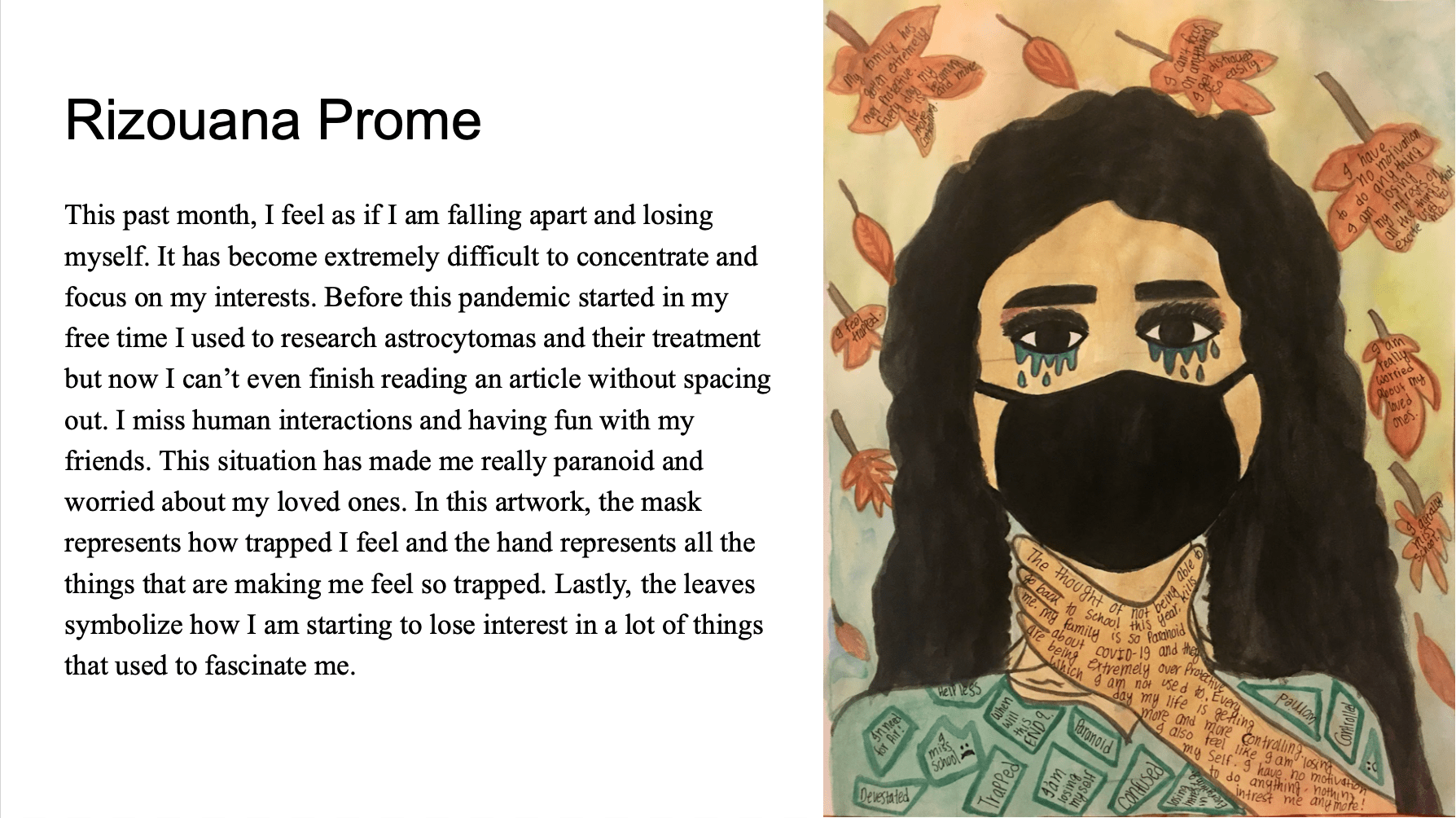
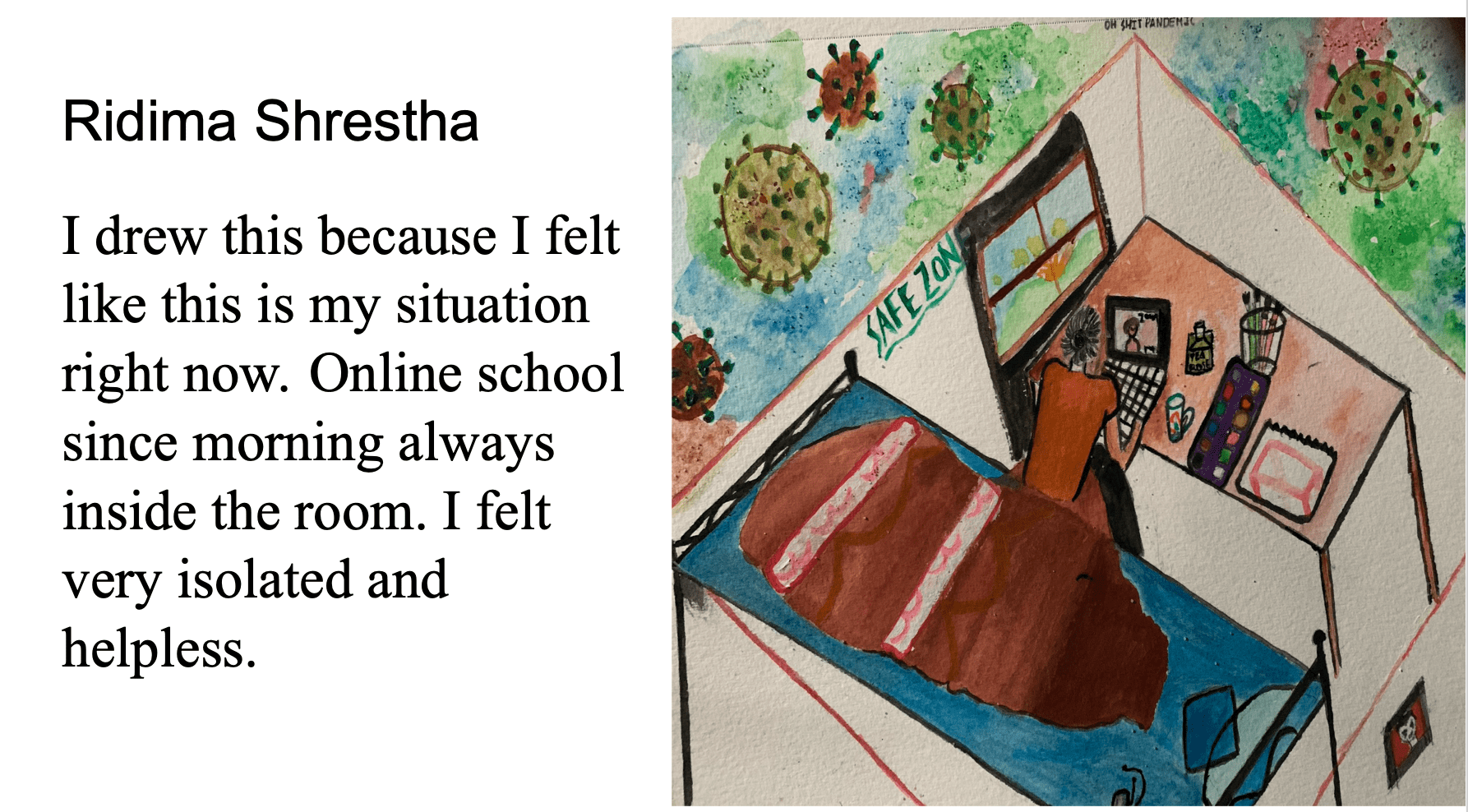
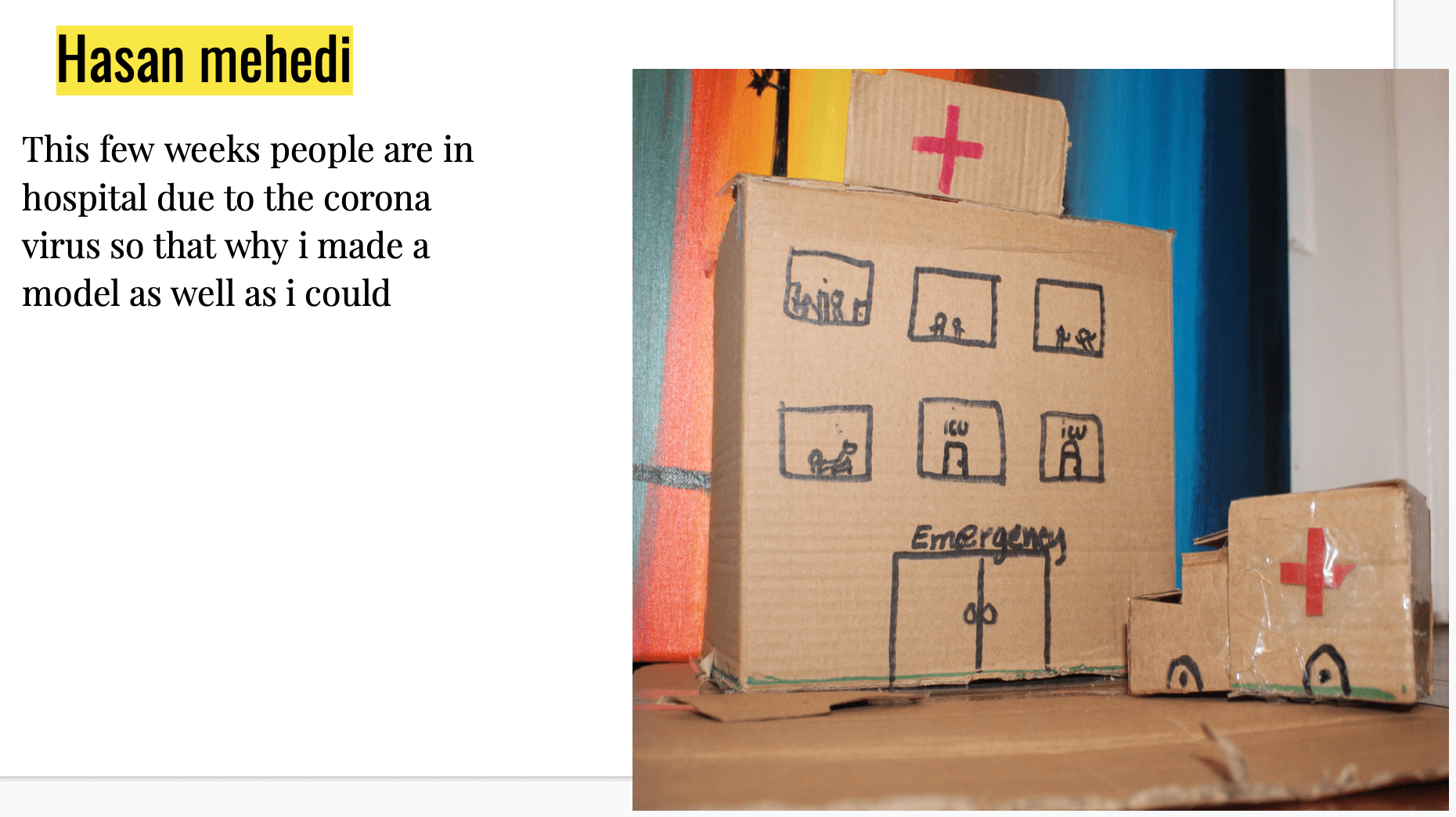
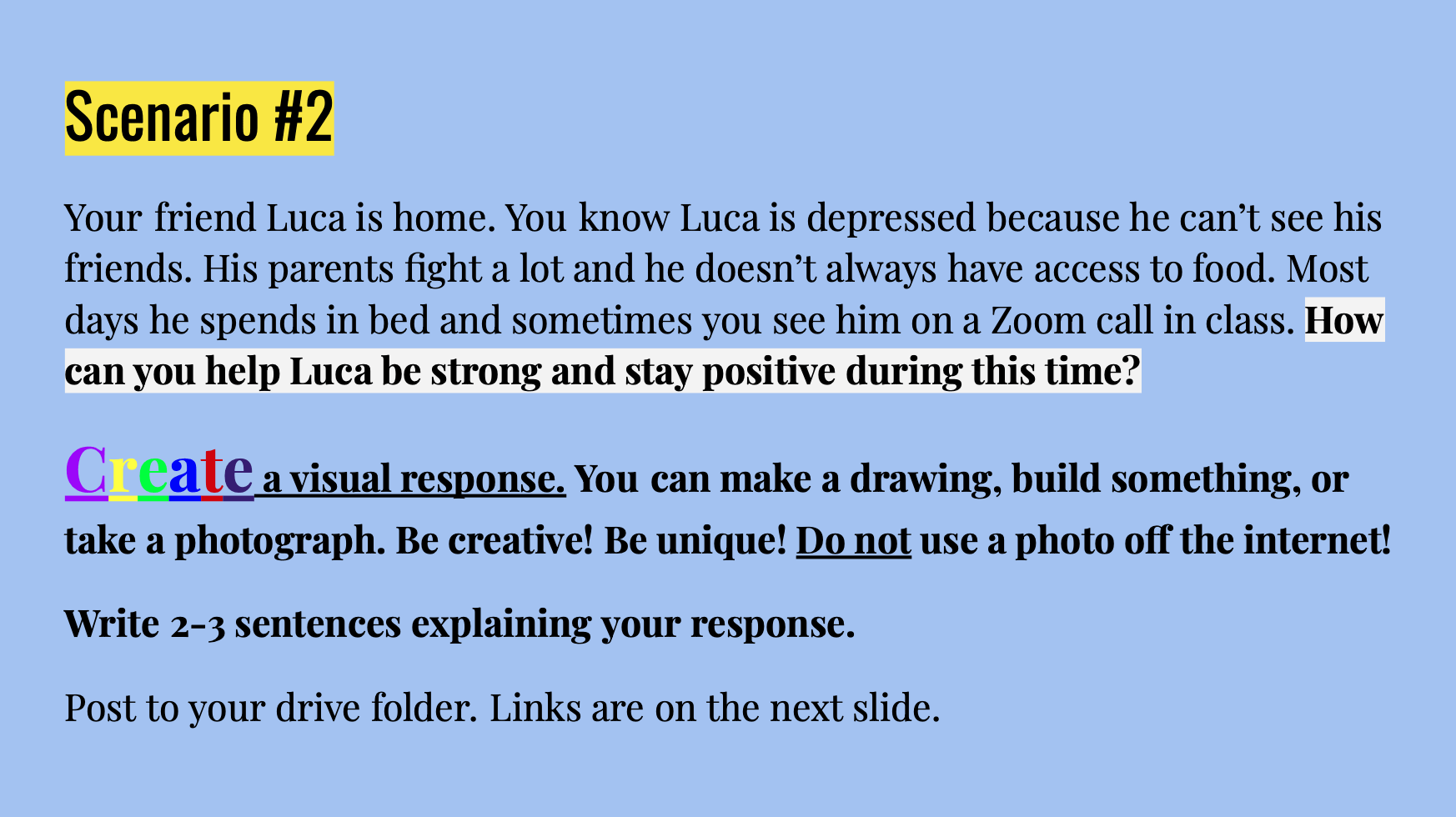
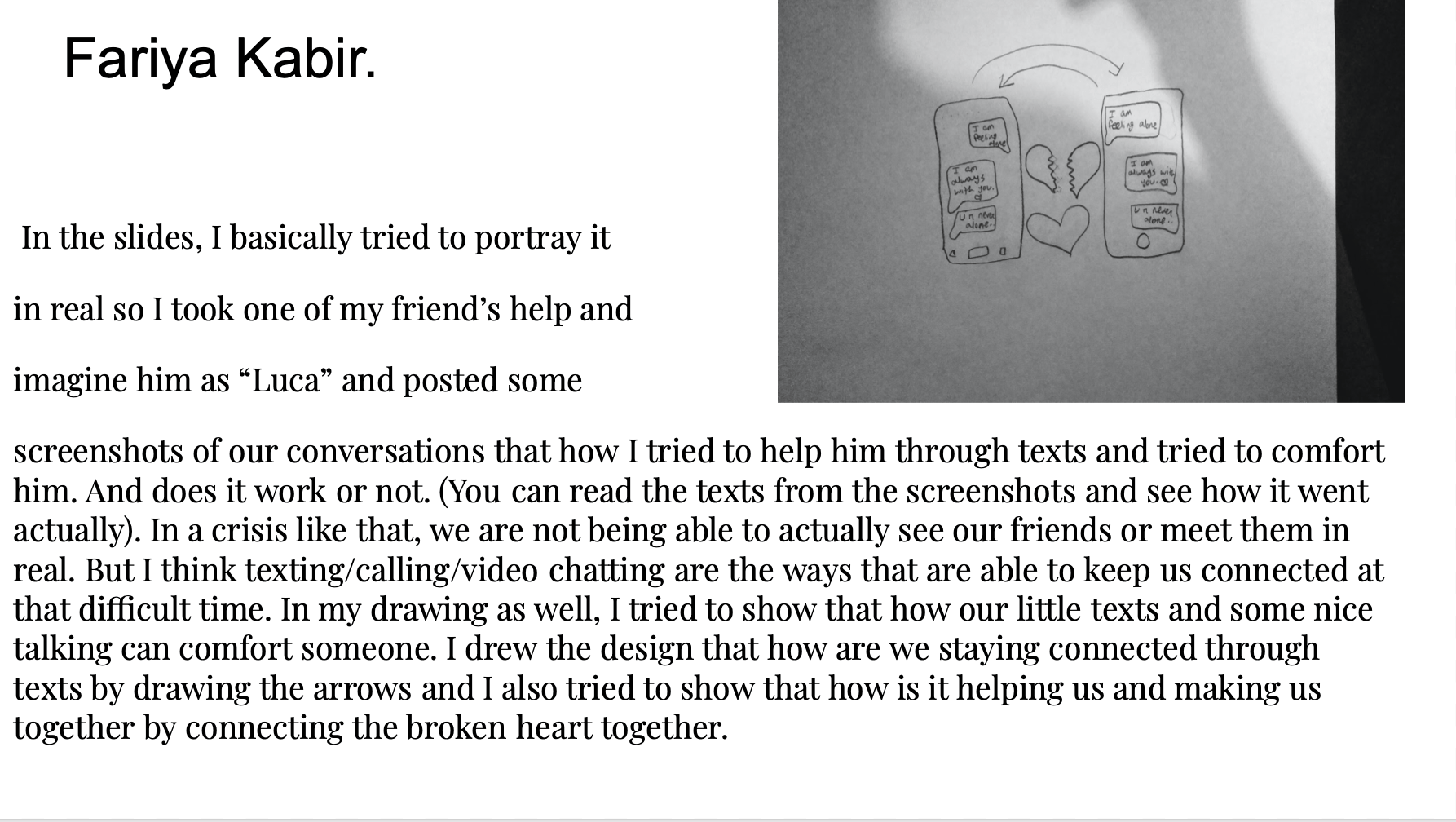



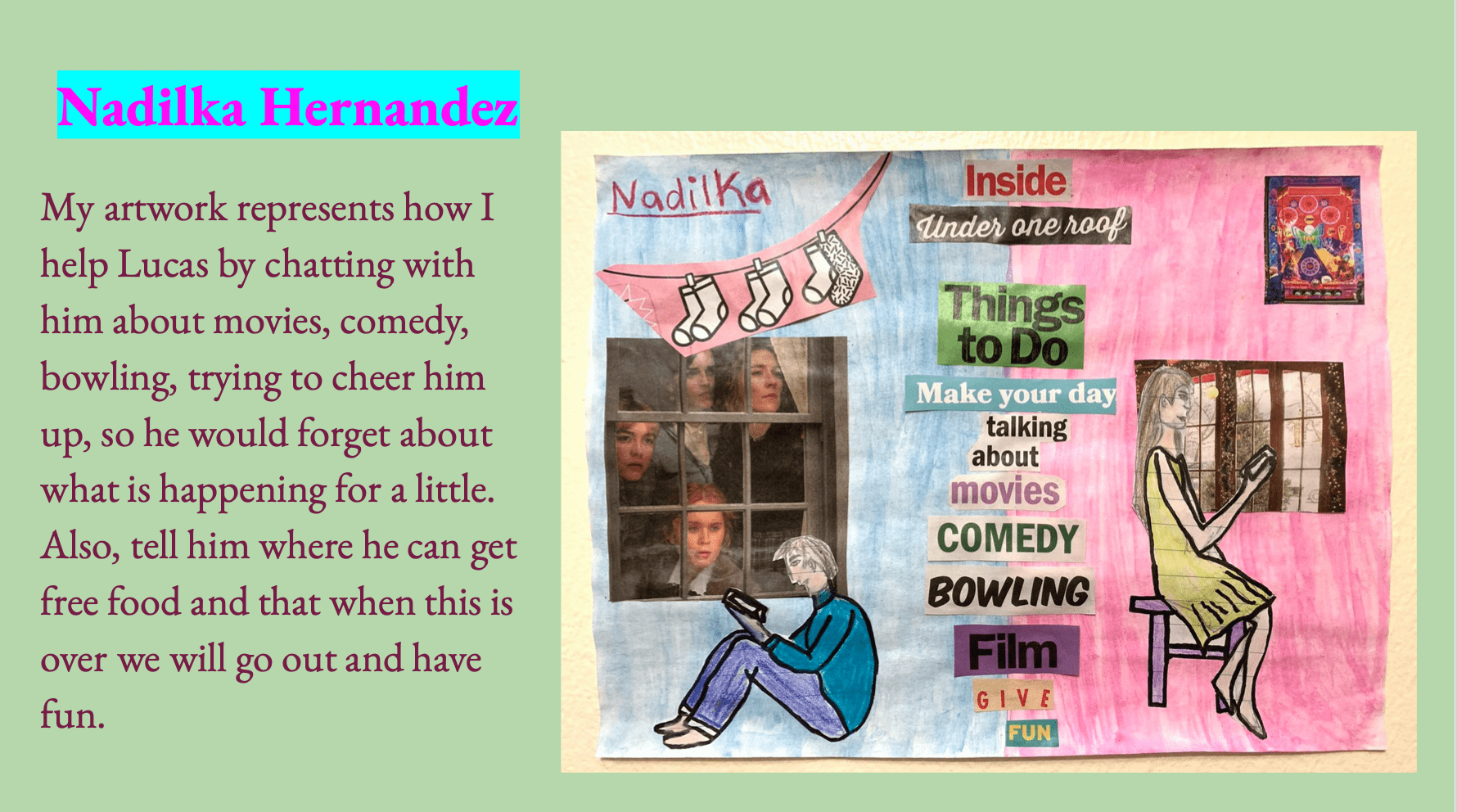
 As part of her fieldwork at Humanities Prep Academy with teaching mentor Gladys Pasapera, Art + Education graduate student Ariana Elmayan posed the Rijksmuseum’s “Between Art and Quarantine” challenge to her students. The challenge prompts students to recreate a work of art with anything students can find in their homes while self-isolating, which includes objects, people, or pets.
As part of her fieldwork at Humanities Prep Academy with teaching mentor Gladys Pasapera, Art + Education graduate student Ariana Elmayan posed the Rijksmuseum’s “Between Art and Quarantine” challenge to her students. The challenge prompts students to recreate a work of art with anything students can find in their homes while self-isolating, which includes objects, people, or pets. 